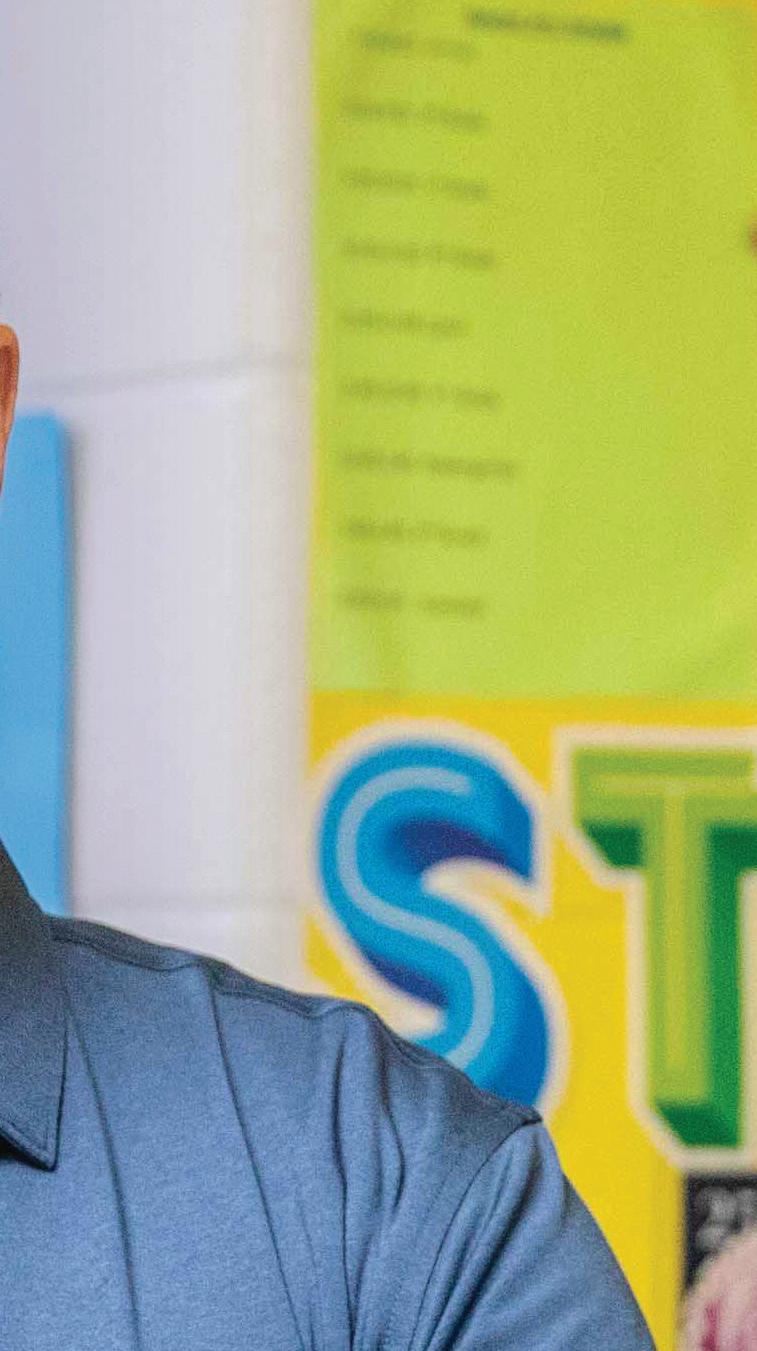

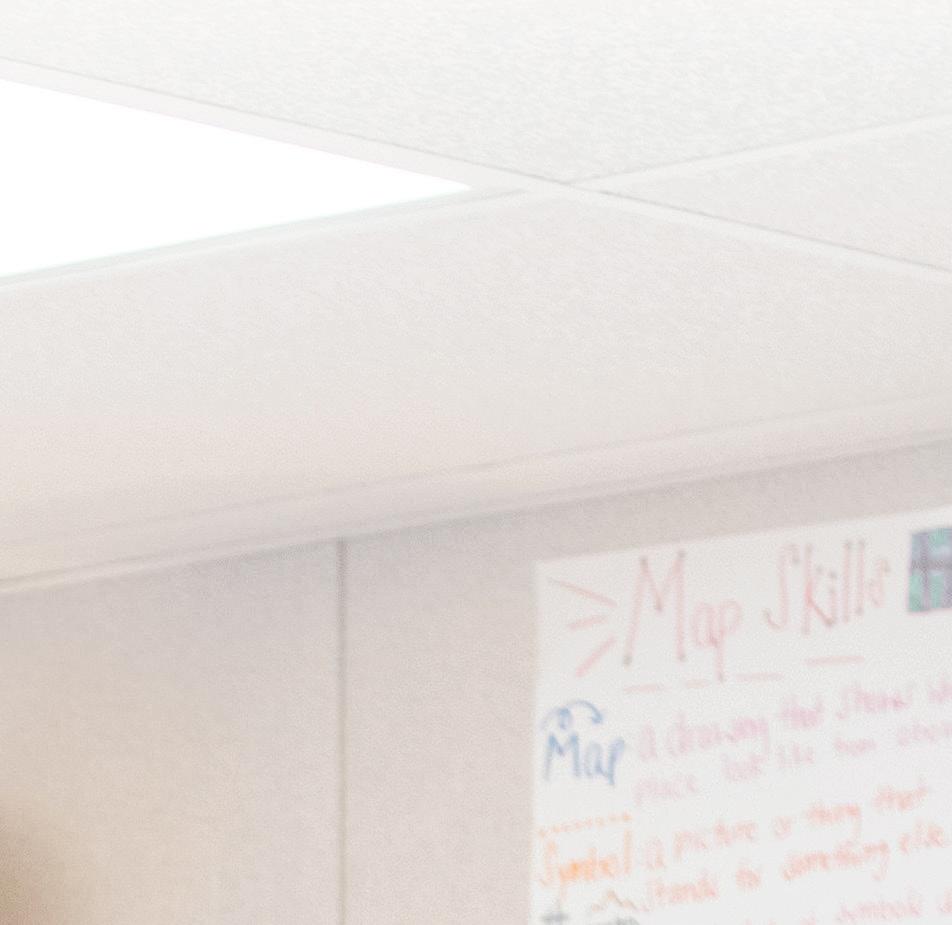






2024-2025 Dean’s Report






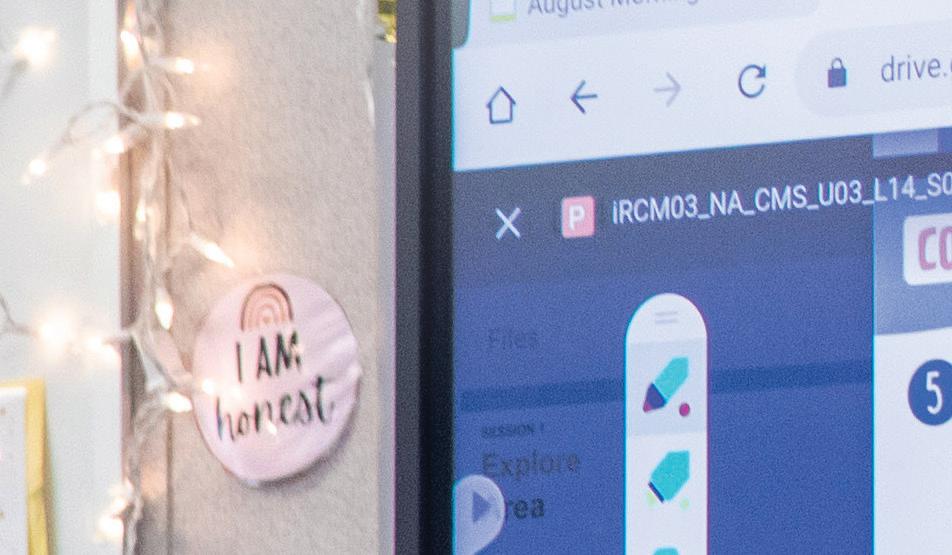



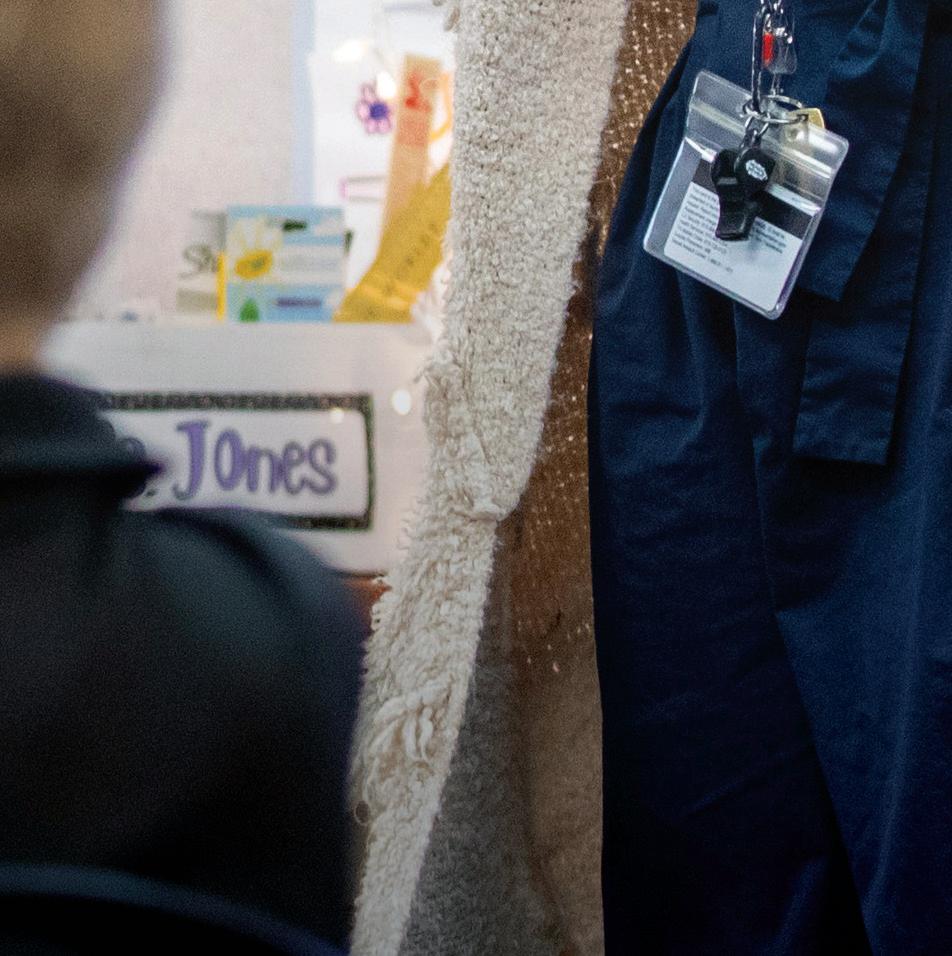


It’s about creating an effective team.
Page 3



















Lipscomb is a leader in education that develops leaders for education.
Seventeen years ago, Lipscomb University made a bold move—elevating its education programs to establish a dedicated, stand-alone College of Education. It was a vision born out of deep conviction: that Lipscomb had a compelling Christcentered mission and deep educational expertise that could undergird one of the best colleges of education in the country.
I had the distinct honor of serving as the founding dean, and it’s been remarkable to witness how that original vision has not only endured—but has flourished. Today, in classrooms and communities across the country, Lipscomb-trained educators are everywhere and continue to answer the call to lead with courage, compassion and conviction. At a time when the education landscape faces unprecedented challenges, our Lipscomb alumni and faculty continue to shape the future of education one student at a time.
Since its inception, the College of Education has remained committed to Lipscomb’s overarching mission and the college’s vision to inspire excellence in teaching, learning and leading. That vision grew from the awareness that being an excellent educator is about more than simply teaching, it’s also about leading and continuously learning. This vision is the same today as it was in the college’s early days: in the face of challenges, our education system needs leaders.
Many Lipscomb College of Education alumni are taking up that mantle of leadership. Among our alumni are Teachers of the Year, Teacherpreneurs, Blue Ribbon Teachers and Aspiring Educators of Excellence.
All of the college’s programs—those at the bachelor’s level, those that focus on teacher licensure and those at the graduate level—are all infused with leadership development:
• We focus on developing master teachers and mentors,
• We are known for training on coaching and collaboration,
• We are a ‘go to’ source for districts working to raise up homegrown leaders, and
• We empower aspiring and advancing leaders to take their work to the next level.
The pages of this magazine explore in depth how Lipscomb is a leader in education that develops leaders for education. We do this in many ways, including by addressing the state’s and nation’s teacher shortage as we attract new talent to the profession, by boosting teacher retention with a focus on high-quality practices, and by maximizing the talents of current teachers by developing their leadership. Simply put: We grow leaders.
It is not a surprise that Lipscomb’s education story has flourished. We started with a big vision and a compelling mission that focused on leadership development as a difference maker. Today, Lipscomb’s College of Education is one of Tennessee’s most effective teacher and leader programs in the state and has been so since the very beginning of the state’s Teacher Preparation Report Card. For the 13th consecutive year, Lipscomb has earned the state’s highest ratings. In addition Lipscomb University enrolls and graduates more teachers each year than any other independent university in the state and is the second largest producer of future school and district leaders from any private institution in Tennessee.
I hope you will see the difference for yourselves as you read each story on these pages. Please consider how you can join us and be a part of Lipscomb’s remarkable and ongoing legacy in education in Tennessee and beyond. There is so much ahead and we’d love to have you lead alongside us!
Best,
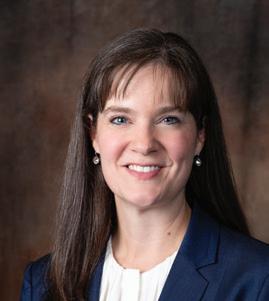


Dr.
Candice McQueen (BS ’96) President, Lipscomb University

Since 2022, Lipscomb University has been walking a path toward becoming known nationwide as the top-tier institution we know ourselves to be.
As part of that fueling vision, the College of Education developed a common language around our call to be educators and how our faith informs that call.
We dubbed this common language our “Guiding Truths”—love, serve, seek and equip—and they are the consistent thread running through all our courses, programs and initiatives.
You will see throughout these pages how we are bringing each one of these Guiding Truths to bear on what is arguably the toughest problem in education today: the nationwide teacher shortage (pages 4-11). This is a problem that can only be solved by an outpouring of love, service, seeking and equipping.
Perhaps the most obvious is that as a higher education institution, our very existence is to
equip, to prepare the educators of today (see page 9) to plant the seeds for love, service and knowledge in other communities of the future. We certainly do that, with 575 teacher candidates enrolled over the past three years, one of the top numbers of all the state colleges.
Not only do we as a college serve with our own hands and feet in our local schools, but we also nourish efforts to create caring communities of love and support within the schools themselves, through schoolspecific professional development, nurturing partnerships that allow more aspiring educators to enter the classroom and modelling collaboration and mentoring (see page 10)
As researchers we continually seek to grow, learn and understand how best to educate, but we also seek to grow, learn and understand the lived experiences of others, especially through the lives of our students who come from various ethnic and cultural backgrounds (see page 6).

It’s not hard to see Christlike love as the foundation of our human interaction as we guide our teacher candidates to understand their own strengths and weaknesses, their own spirituality and their own capability to pass on Christ’s love through their expertise and caring (see page 30)
Throughout this report, you will see many of the ways that you too can be involved in bringing love, service, seeking and equipping to Tennessee’s schoolchildren and their educators. I invite you to think about how you can join in this mission, anchored in the love of Christ, to prepare learners for purposeful lives through rigorous academics and transformative experiences. Please do not hesitate to reach out and join us in our mission.

Leslie Cowell Dean, College of Education
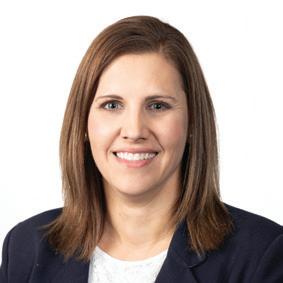
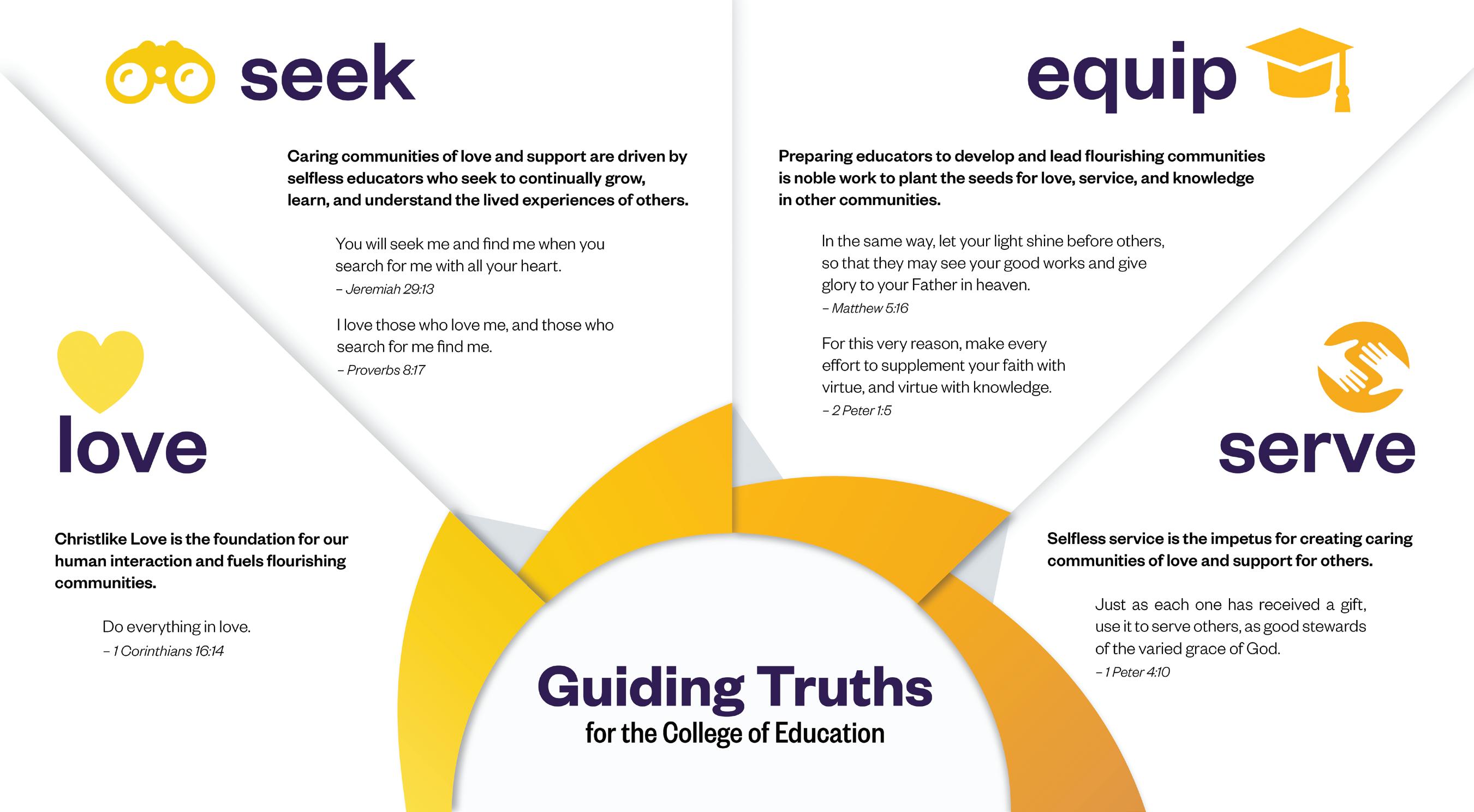


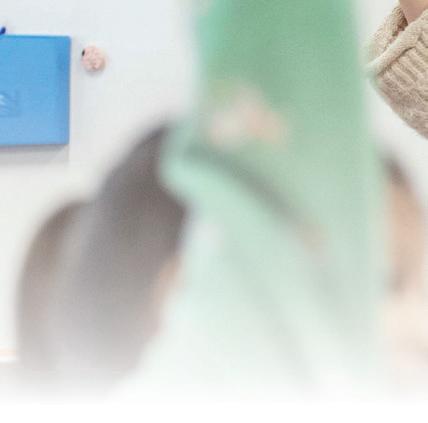

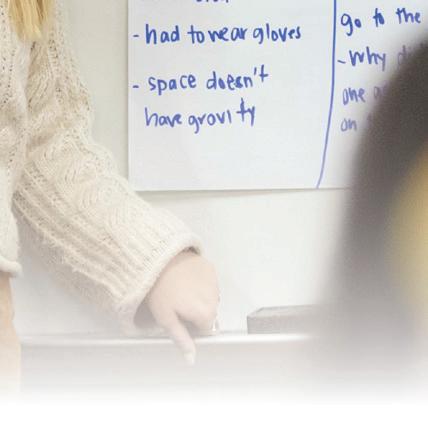



If there is one thing the past decade has taught us about teachers, it’s that a salary is not enough.



It takes more than a salary to attract and keep quality teachers in Tennessee’s classrooms.

“When it comes to why teachers are leaving the profession, salary actually ranked fifth on the list,” according to the SCORE report, with only 23% citing salary as the reason for their departure.
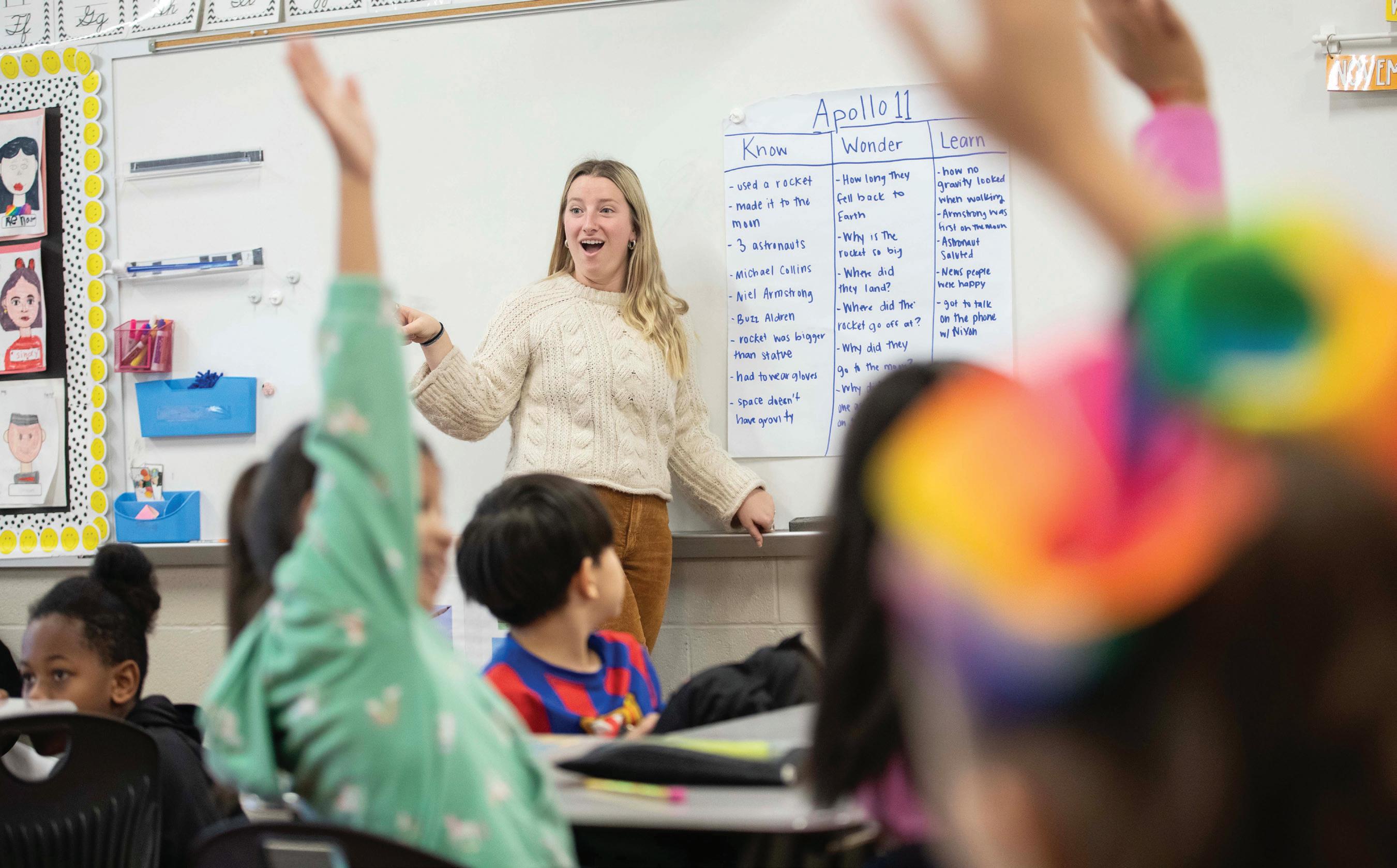
America’s teacher shortage has been around for some time. According to the National Center for Education Statistics’ 2023 Report on the Condition of Education, the number of people completing traditional teacher preparation programs nationwide decreased by 28 percent from 2013 to 2020.
Tennessee has not been immune. The number of candidates completing educator preparation programs has fallen nearly 40 percent over the last decade, according to an analysis of the State Board of Education Educator Preparation Program Report Card by the State Collaborative on Reforming Education or SCORE.
While the state has made significant investments in the teacher pipeline, including salaries that have risen more rapidly as of 2023, a 2024 report by SCORE indicates that salary alone is no longer enough to recruit and keep effective teachers.
What ranked higher? School leadership, workload, the school’s culture and climate, and personal reasons.
The shortage is about more than salaries.
It’s about teachers needing to feel supported in doing their best for their students. It’s about a culture of collaboration. It’s about feeling well-prepared and confident on day one, as well as having accessibility to professional development to continue making an impact in the classroom while also climbing the career ladder.
It’s about creating an effective team who support and motivate each other to success.
Here at Lipscomb, none of these ideas are new. For the past two decades Lipscomb’s College of Education (COE) has been infusing its teacher preparation programs and graduate leadership programs with these very concepts, consistently working to build the members, and the leaders, of an effective education team.
The National Council on Teacher Quality gave Lipscomb an
Ain 2023 for preparing future teachers to teach reading
Ain 2022 for preparing future elementary math teachers

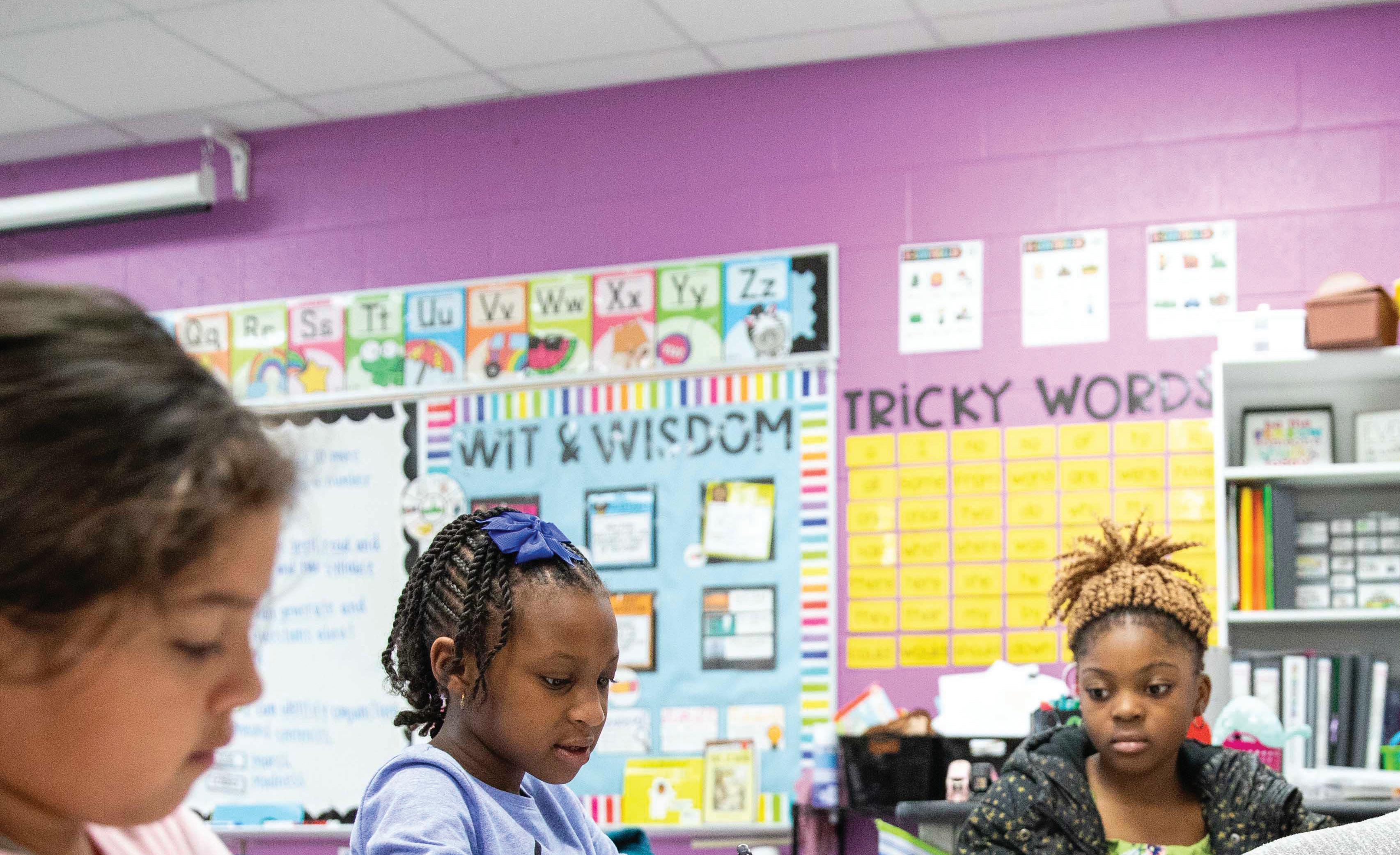
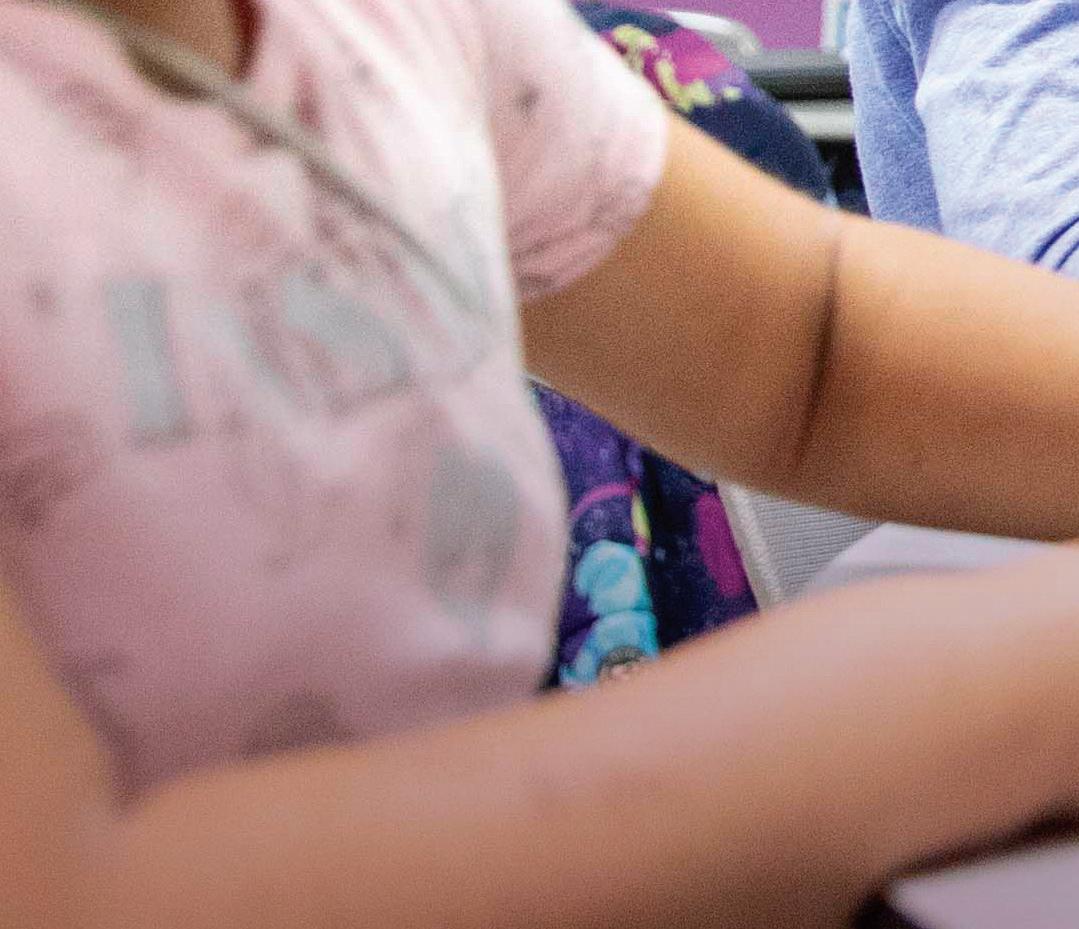



2024 Teacher Preparation Report Card, Tennessee State Board of Education 13 58%
Years as one of the state’s most effective teacher preparation programs of students graduated with endorsements in high-demand in Tennessee (compared to 30.8% state average)


is the first or second top producer of graduates in all five high-demand endorsement areas for the state of Tennessee
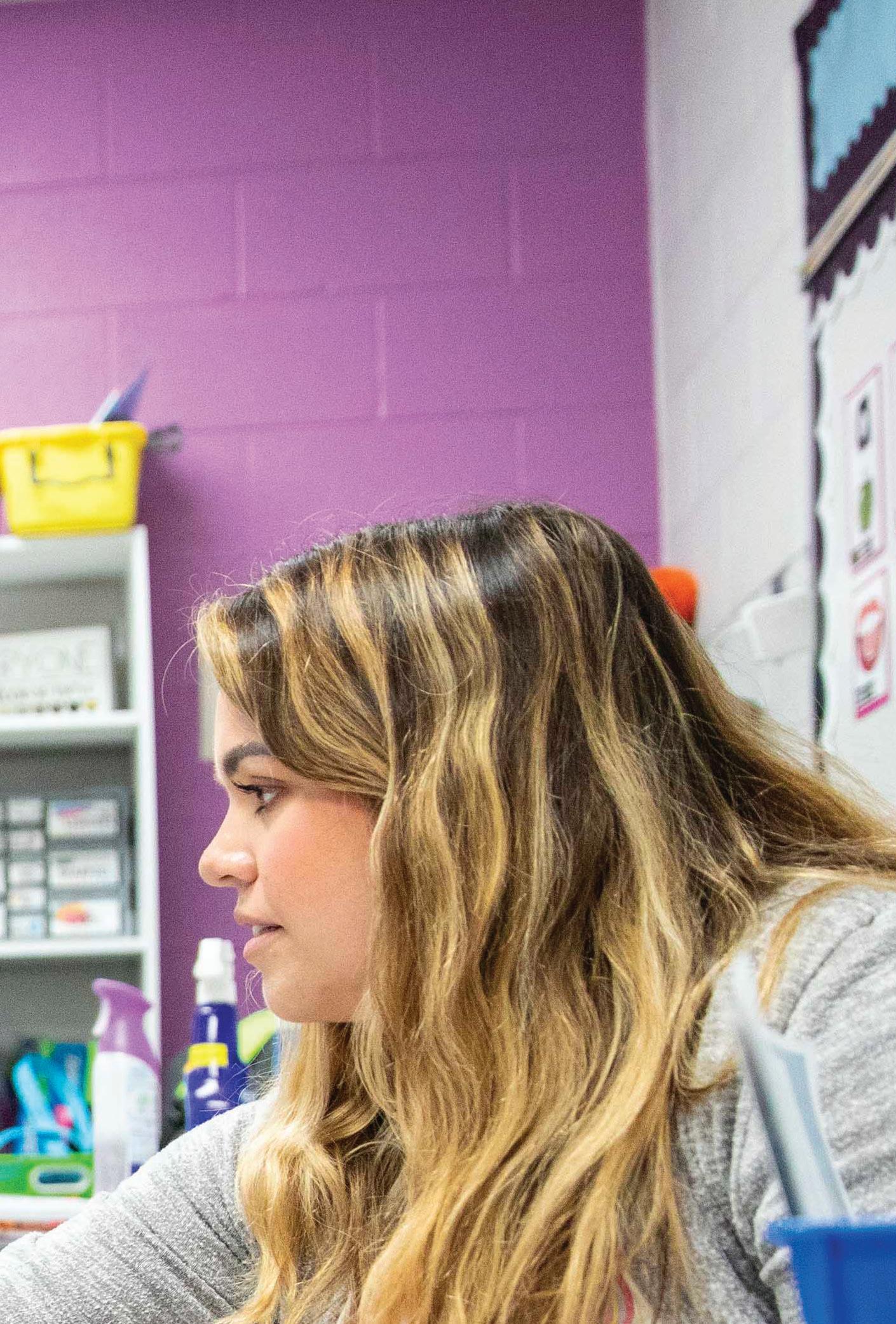



Through its analysis of 15 representative school districts in the state, SCORE came up with some recommendations for today’s district leaders to build an effective education team:
• Attract new talent through future teacher scholarships, partnerships with education provider partners (EPPs) and Grow Your Own (GYO) programs;
• Boost retention of classroom teachers through mentorship and coaching and providing opportunities for their voices to be heard; and
• Maximize current talent through strategic use of staff to be coaches, mentors and multi-classroom leaders, taking on more leadership responsibility while still teaching in the classroom.
Lipscomb’s College of Education is a frequent EPP partner with school systems throughout Middle Tennessee, providing licensure training and master’s-level instruction combined with mentorship, coaching skills and insight drawn from on-site experiences and research data.
Scholarship programs are targeted to the areas of greatest need, including in-demand STEM areas, and endorsements are continually being revised and created to meet the latest area of instructional need.

Lipscomb’s educational leadership programs are focused on districts raising up their own administrative leaders who understand their local problems but who can apply knowledge of statewide innovations. Even Lipscomb’s doctoral students learn in a collaborative environment, working as a team to complete their dissertation research.
This school year has been no different. In 2024-2025 the College of Education has:
• Established new academic programs to make teacher (see page 19) and administrative certification (see page 22) more accessible for all;
• Signed on to additional EPP partnerships including one for teacher residencies in Memphis and another for early childhood education (see page 8);
• Taken steps to boost partnership creation for the future; and
• Established a credential in Christian education (see page 28) and an endorsement in computer science (see page 33).
That’s in addition to long-standing, continuing partnerships and initiatives to bring those most passionate about education into the profession and working to keep them there through strategic training, advocacy and innovation.
Lipscomb believes it takes a team to solve the shortages facing the profession today. Read on to learn about the latest ways that Lipscomb is teaming up with local educators and district leaders to create an education culture to combat the teacher shortage head on.
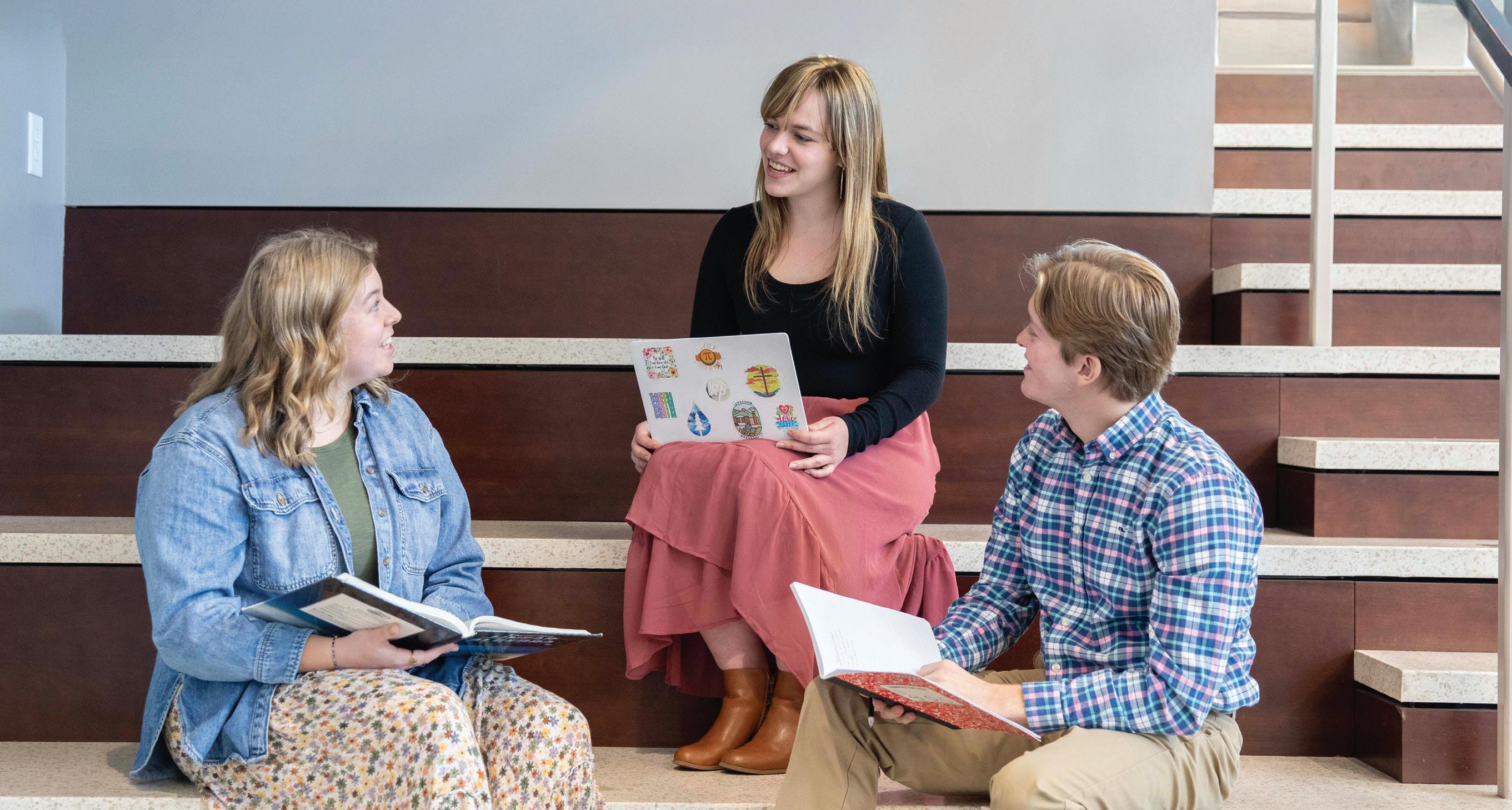
To make a dent in the teacher shortage long-term, it is imperative that the education profession recruit not just people, but the right people.
Lipscomb’s College of Education has certainly taken this maxim to heart, by investing in strategic recruitment and scholarship programs targeted to those candidates most likely to succeed in the school system while also filling specific personnel needs in the education community.
Teach For America (TFA), the nationally respected recruitment organization that steers college graduates into teaching in high-need locales, launched a Nashville cohort in 2009. Upon arrival, it was Lipscomb that the organization chose to be its licensure education partner and to host the summer institute for new recruits.
That 17-year relationship continues today, with new Program Director Katelyn Hadder (MED ’18, EdD ’21, GC ’24), assistant professor and former Nashville TFA corps member, providing licensure education for an additional Lipscomb-served TFA corps in Chattanooga.
In 2015, private funds created the Pionero Scholars to recruit Nashville students who reflect the multicultural city and who were inherently invested in working in their home city. By 2024, Lipscomb produced 27 Pionero alumni who almost all teach locally or are in positions supporting education.
“By reaching out to students who are interested in teaching and experienced the incredibly diverse schools of Nashville as students, we are able to find teacher candidates who are motivated to use their skills in their hometown,” said Laura Delgado, program director for the Lipscomb Educator Scholars, which includes Pionero.
“NOT ONLY WAS I EMPOWERED TO PURSUE WHAT I AM PASSIONATE ABOUT— TEACHING AND ADVOCATING FOR OUR YOUTH—BUT I WAS ALSO INSPIRED TO STEP OUT OF MY COMFORT ZONE INTO CREATIVE AND NETWORKING SPACES THAT OPENED DOORS FOR MY CAREER AS A TEACHER.”
RUBY AGUILAR (BA ’20, GC ’21)
English teacher at Glencliff High
School, Pionero Scholar, finalist for 2024 MNPS
Teacher of the Year
The program had 38 students enrolled in 2024-2025, expects to enroll 45 in fall 2025 and has funding to grow to 60 in 2026.
The Pionero formula was built on later in 2022 with the establishment of the MNPS Lift Off to Lipscomb scholarship program, which recruits Metropolitan Nashville Public School (MNPS) students into Lipscomb’s teacher preparation programs through the district’s University MNPS program.
From 2017 to 2023, the Tennessee Higher Education Commission awarded grants to Lipscomb to provide scholarships for educational assistants (EA) already working in school districts to become lead teachers in the classroom.
Three Lipscomb faculty–Kristin Baese, Ally Hauptman and Delgado–created the EA Fellows program targeting what
they called “an untapped pool” of highpotential teacher candidates.
“We wanted to find people who already know and love education and are serving our kids in Metro but who didn’t necessarily have the opportunity they wanted to become teachers. So pulling from the educational assistant pool made the most sense,” said Hauptman, now assistant dean for teacher education.
As of 2025, 18 fellows have had the opportunity to complete their teaching license and become the teacher of record in Nashville schools.
Just as important as finding the right people is fitting them into the right job in education. One area of particularly high need in the education field is STEM areas. That’s why the Noyce program, funded by a National Science Foundation grant
through 2026, provides a scholarship, extracurricular opportunities and one-on-one mentoring for students interested in teaching in STEM, said Kara Krinks, associate professor and director of Lipscomb’s Noyce Scholars program. In return the students pledge to teach for at least two years in a highneed school. So far, most of the Noyce graduates have opted to stay in Nashville to teach, said Krinks.
“We have focused on preparing them to teach in a culturally responsive way in the high-need districts they will be in,” said Krinks. “We need more teachers highly trained to teach in these classrooms, so we are taking the students already in the pipeline and equipping them to teach in more culturally diverse areas.”
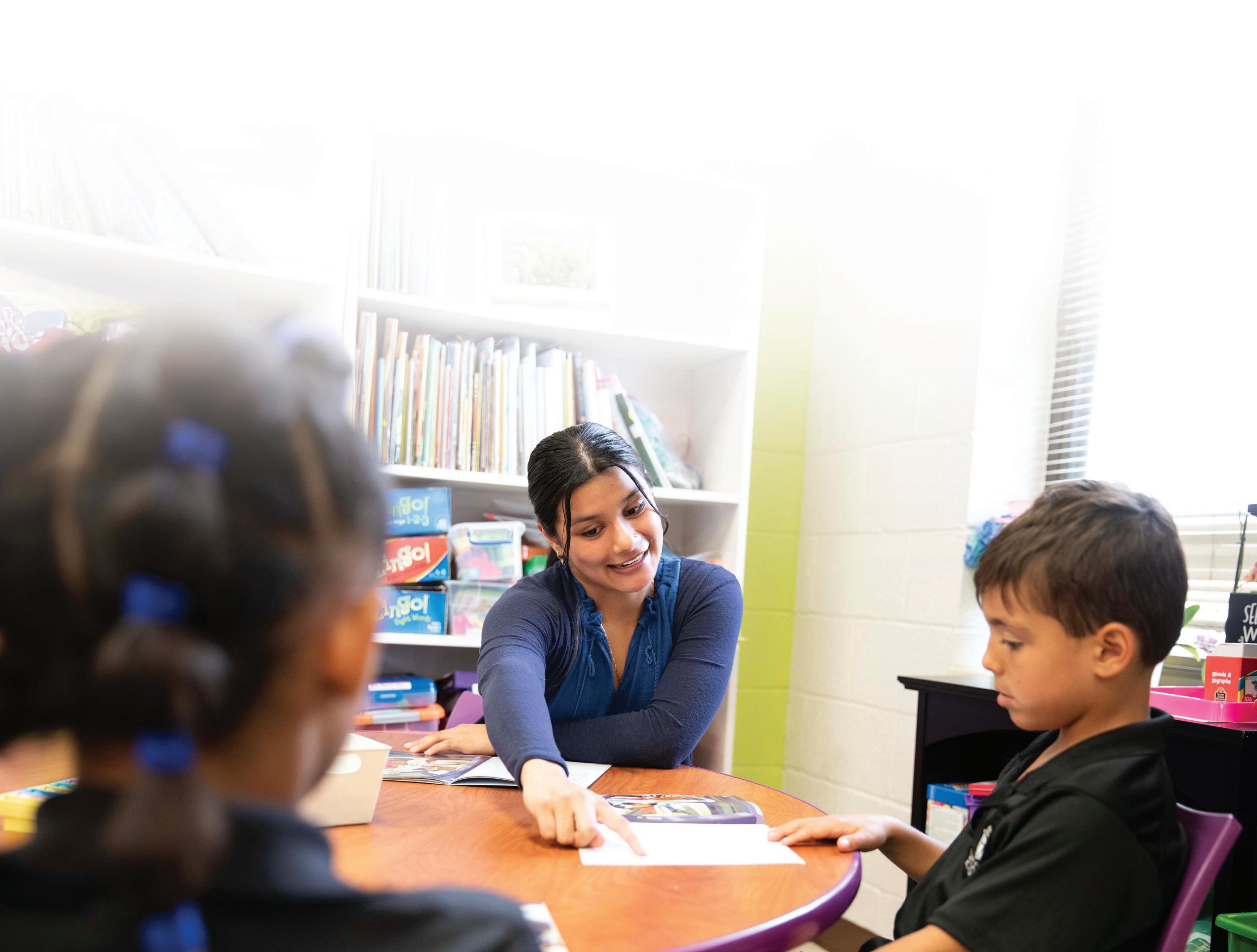
Lipscomb and its EPP partners are among those in the state with the most ethnic variety in their cohorts*
*Source: 2024 Teacher Preparation Report Card, three-year cohort
16.2% 32.3% 22.1% 46.6%
Statewide Average Teach for America Lipscomb COE Graduates Memphis Teacher Residency
In the past 12 months Lipscomb has spearheaded additional teacher pipelines:
• University of MNPS EPP Partnership
An additional district-led EPP was inked in January with the University of MNPS offering participants the opportunity to pursue teaching licensure at no cost, with the convenience of online classes. The program focuses on addressing highneed licensure areas, including some listed by SCORE as in particular need in Tennessee. The focus areas are K-5 with a special education dual endorsement; K-8 or 6-12 special education interventionist; K-12 special education comprehensive; 6-12 mathematics; 6-12 science; K-12 English language learners (ELL); and K-12 Spanish.
• Memphis Teacher Residency (MTR) EPP Partnership
Participants in MTR, a faith-based, nonprofit organization that invites college graduates to train with a mentor teacher and receive coaching, will now be able to seek licensure and take master’s level courses from Lipscomb with 100% tuition coverage. Coursework will be available onsite in Memphis as of this fall, and graduates will commit to teach in Memphis’ under-resourced schools for three additional years. MTR is consistently ranked as one of the most effective teacher preparation programs in Tennessee.
• Online Organizational Leadership Bachelor




• Foundations to Futures Apprenticeship Program
In February, the college established a new pipeline for aspiring teachers to become early childhood educators with a bachelor’s degree and an apprenticeship experience at Nashville’s Little Wonders Early Learning Center. With only 30% of staff in early childhood learning centers nationwide holding a bachelor’s degree, this partnership with the U.S. Department of Labor, the Tennessee Department of Education and the Joe C. Davis Foundation strives to provide educator candidates with a tuition-free bachelor’s degree, as well as aid to cover books, transportation, child care and other costs, along with the hands-on learning experiences at Little Wonders. Pending accreditation approval, this pipeline will begin enrolling in fall 2025.
In 2024, the college debuted an organizational leadership degree with an emphasis in education. The program features online classes and the ability to gain credit for workforce experience and leadership skills in order to provide adults without a bachelor’s degree a shorter timeline and potentially at a lower-cost (see page 19) Such an approach lessens two crucial barriers for individuals currently working in education, without a bachelor’s, who would like to move into classroom teaching.

move into classroom teaching.
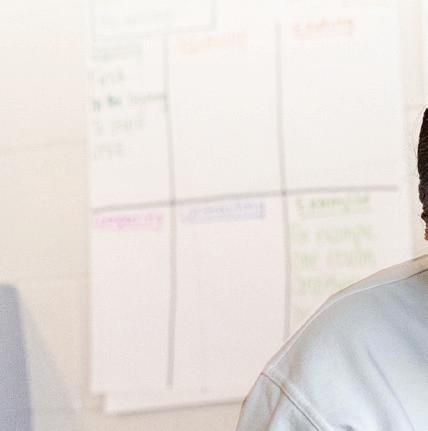
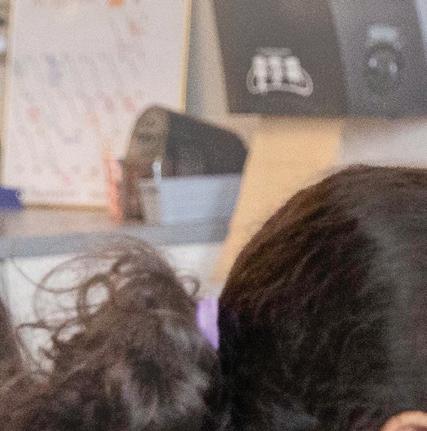
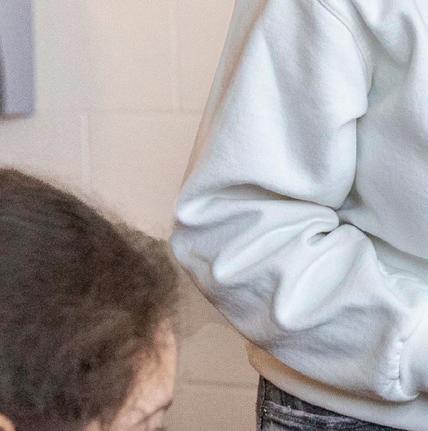
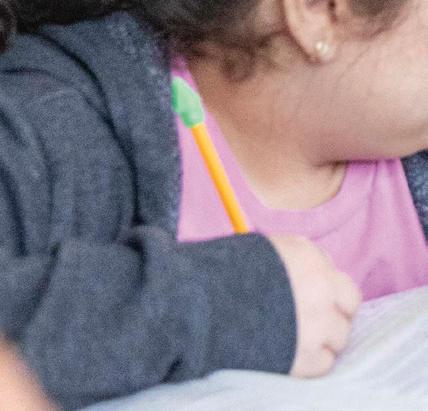
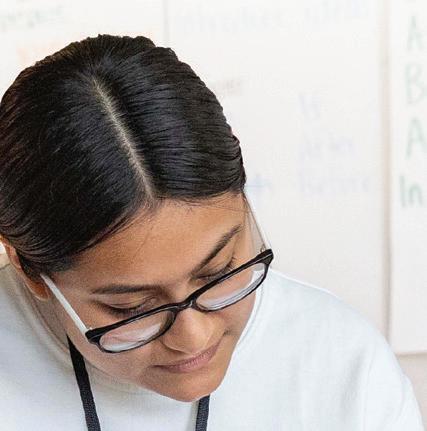

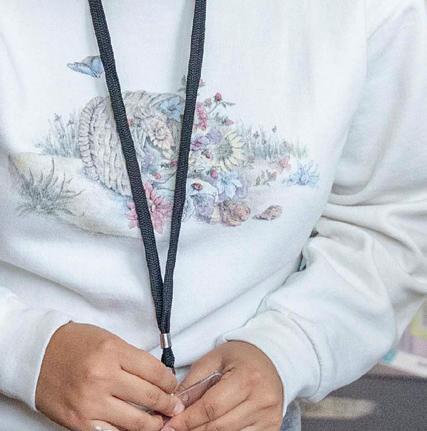
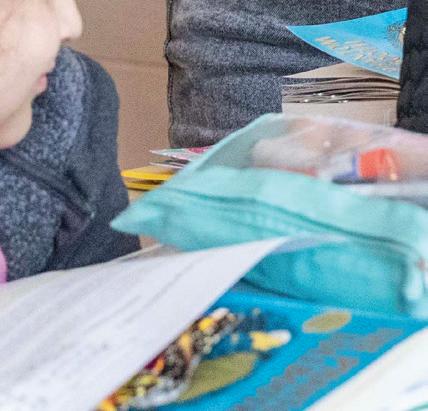
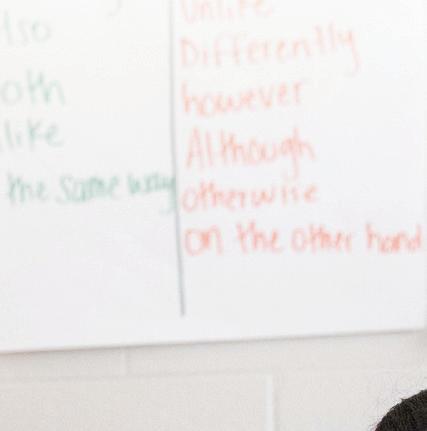
“I HAD THE OPPORTUNITY TO GO TO THE TENNESSEE MATHEMATICS TEACHERS ASSOCIATION CONFERENCE LAST YEAR, AND IT WAS AMAZING TO MEET OTHER MATH TEACHERS AND SEE THE FIELD THAT I AM STEPPING INTO.” LAUREN TERRY

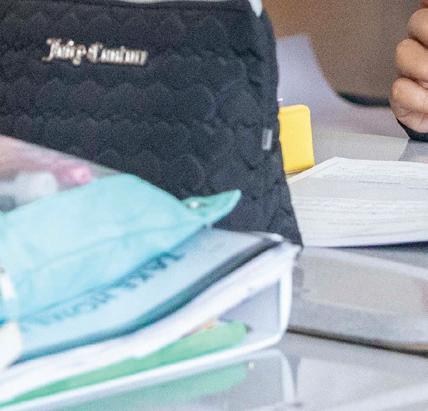

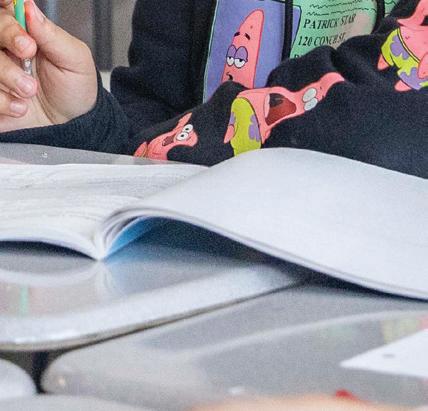



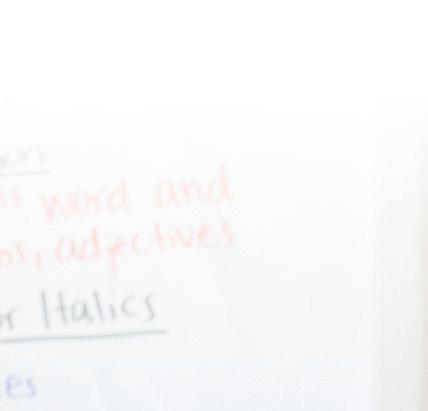



Noyce Scholar, winner of the Tennessee Mathematics Teachers Association (TMTA) Frandsen Scholarship
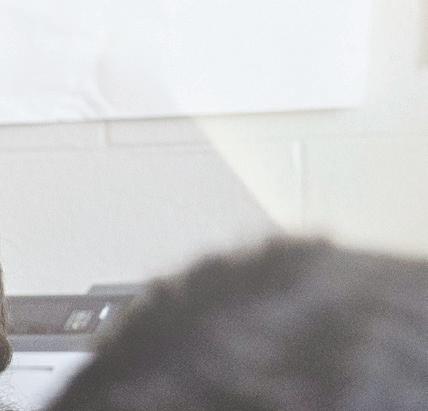





In order to tackle the current teacher shortage, once novice teachers enter into the classroom, districts must focus on keeping them there, and that can be harder done than said.
According to SCORE, teacher turnover is highest among novice teachers with two years experience or less. Those first-year teachers who do choose to stay at their school are more likely to have experienced supports such as a formal teacher mentor, instructional coaching, a peer reflection group or assistance in preparing for observations, states the report.
In other words, they are part of a supportive team, all working toward a common goal.
With stress in the teaching field reaching new levels, Lipscomb’s student teaching seminar for new teachers has included several sessions on social and emotional competencies since 2019.
Lipscomb’s teacher candidates learn to develop social and emotional competencies like self-awareness and self-management, and coping skills such as recognizing what they can control, identifying their emotions and recognizing when their internal dialogue is intensifying the situation.
“If we make sure they are aware of how to govern themselves in the classroom, and that they can enact a proactive plan with coping strategies, then they are more likely to not suffer emotional exhaustion and burnout and will be able to stay in the classroom,” said Megan Parker Peters, associate dean, who has conducted research in the area.
In addition, Lipscomb’s various programs designed to attract new people to the education profession, such as the Pionero program, EA Fellows, Noyce, University of MNPS, and the MTR and Foundations partnerships, include individualized supports such as teacher mentors, one-on-one faculty coaching, personalized degree programs, ability
to attend conferences and networking opportunities, and exposure to real-world education experiences and insight from working educators as well as some continued mentorship once in the field.
“The mentoring piece is exceptionally important,” said Krinks. “We carve out dedicated time to check in with the students and help brainstorm ideas and solutions to problems they are having in the classroom.”
These experiences not only enhance students’ ability to complete their degree program, but they also provide a model for becoming a part of a successful team in their future schools.
According to research, shepherding permitted classroom teachers through the licensure process is another effective way to not only bring people to the profession but to enhance their longevity as teachers in the classroom.
Less than half of the teaching permits awarded during the 2018-2019 school year were converted to licensure within a three-year timeframe, according to the 2024 SCORE report, an analysis of 15 school districts in Tennessee. Less than one-fifth of permits in 2021-2022 were converted within one year, according to the report.
Lipscomb offers licensure training through various formats—online, both synchronous and asynchronous, in the evenings and even on-site—designed to bring licensure training directly to permitted teachers in the most convenient and affordable way possible. Many programs also offer facultyled Praxis exam preparation.




“SOMEONE SAW THE POTENTIAL IN ME AND TOOK THE TIME TO MENTOR ME, AND NOW I WANT TO DO THE SAME FOR MY LITTLE ONES. THEIR CONFIDENCE IN LEARNING MEANS EVERYTHING TO ME. WHEN I’M WITH THEM, I STRIVE TO CREATE THE MOST POSITIVE AND EMPOWERING EXPERIENCES POSSIBLE.”
SHEILA HUBBARD
preK









Through the Tennessee Department of Education’s (TDOE) Grow Your Own competitive grant program, Lipscomb has provided no-cost licensure education for several hundred teacher candidates in Clarksville and Nashville in addition to Hamilton, Rutherford and Williamson counties.
In 2022, the TDOE and the U.S. Department of Labor established the Teacher Occupation Apprenticeship program, expanding on the GYO model with financial support for a district’s own teacher candidates covering the cost of books, transportation, childcare, Praxis exam vouchers and other costs to further remove the barriers to entering the classroom. Lipscomb established its first apprenticeship program with the Clarksville-Montgomery County School System.
“Teacher candidates in these programs are pulled from populations who are already active members of their school communities, and the candidates are paired with a master teacher for a full year to reinforce core competencies,” said Vanessa Garcia, assistant dean of community engagement and strategic partnerships. “By allowing candidates to study under a mentor, this model creates a more than 86% retention rate compared to teachers entering the workforce without that opportunity, and Lipscomb’s analysis has shown that this strategy keeps teachers in the classroom beyond five years.”



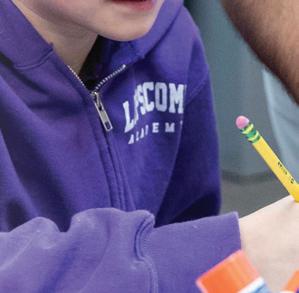

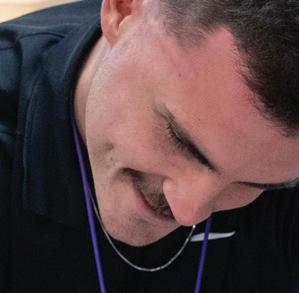
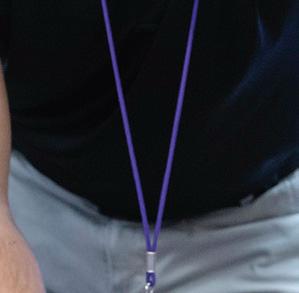
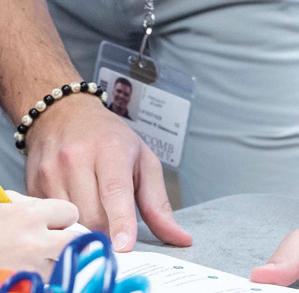

As far back as 2010, Lipscomb has been focused on tailor-made professional development as a model for boosting teacher performance and student achievement.
In that year, Lipscomb’s Cameron Transformation Partnership, a five-year course of on-site, personalized professional development to eliminate achievement gaps at Nashville’s Cameron Middle School, was shown to increase teachers’ achievement of personal improvement goals and student’s math and reading scores in the Tennessee Value Added Assessment System (TVAAS) after just one year.
Through the years, COE faculty have partnered with districts to train teachers to conduct summer literacy camps, to provide personalized professional development in multilingual education issues and for reading specialists, leadership development and coaching for lead educators, among many other programs.
Lipscomb’s ability to provide courses in flexible formats, such as remotely and at night; a Praxis study session component; and one-on-one coaching methods are all factors that appeal to school districts in helping their teachers advance their skills, said Jeanne Fain, director of the English language learners (ELL) program and one of many Lipscomb faculty who have been winning grants and contracts to carry out teacher professional development in various school districts.
In January, Fain began teaching a new round of Zoom classes in the ELL endorsement program for many teachers from throughout the MNPS district.





The Ayers Institute for Learning & Innovation has been providing customized professional learning programs for specific school districts and statewide since 2012. MNPS and Campbell, Gibson, Montgomery, Rutherford, Robertson and Wilson counties have all worked with Ayers to develop professional development that meets their teachers’ specific needs.
The institute’s most successful professional learning offering is the Coaching Academy, interactive sessions offered in a variety of formats, which has been attended by thousands of educators who are now equipped to influence the cultures of their schools across the state.
The institute’s most recent and most innovative partnership is with Sumner County Schools. Since 2022, Sumner’s teacher leaders and coaches have earned a coaching certificate by taking courses in Lipscomb’s master’s program. This past year, Sumner County leaders became the adjunct instructors in those courses, giving them the opportunity to work with their own leaders to define and develop a culture of coaching within Sumner’s schools.
In lean times, it’s best to maximize the resources you have.
SCORE’s research indicates that Tennessee could better maximize its talent by providing opportunities for teachers to expand into leadership roles. Fewer than 2% of teachers in the districts analyzed became administrators between 2017 and 2023. According to the report, elevating the most effective teachers to mentor and into coaching roles or a multi-classroom leader, can create a career ladder for teachers to progress to higher levels of responsibility and pay without leaving the classroom.
282 46.1%
graduates of the ELL Endorsement Program 2019-2025 with of graduates from underrepresented racial categories
So in addition to in-school professional development focusing on coaching and collaboration, Lipscomb is working to build school leaders by establishing pipelines to its graduate and educational leadership degree programs that make advanced education more accessible and customized to the challenges today’s educators face.
Through a Kern Family Foundation-funded program, which prepared 89 home-grown leaders for Tennessee’s rural and high-need urban schools by 2023, Lipscomb learned from those districts that easy access to the academic coursework is paramount and that cost is a tremendous barrier for educators, especially those in smaller, more rural districts, said Lance Forman, assistant dean of education specialties.
With those take-aways in mind, the college has developed an educational leadership program that provides the same focus on character development, conflict management and business acumen as the Kern-funded program (with 56% of alumni now in leadership positions), but is delivered online and costs only an affordable, flat tuition fee.
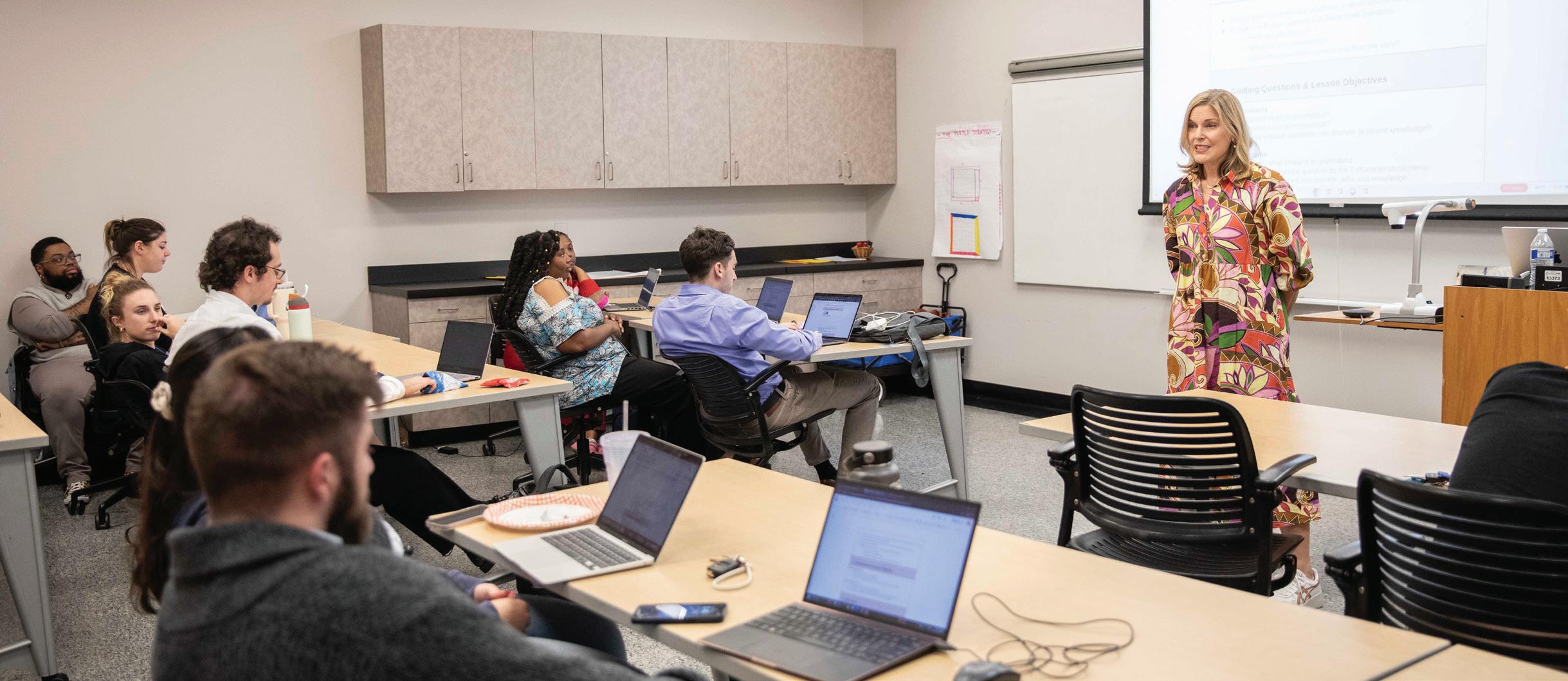

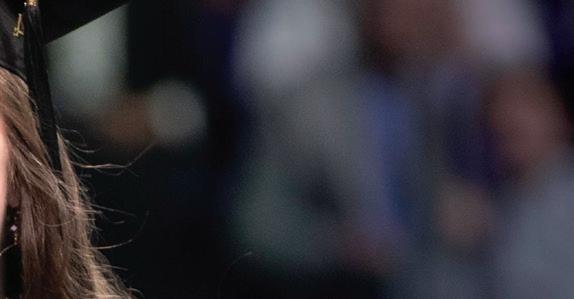
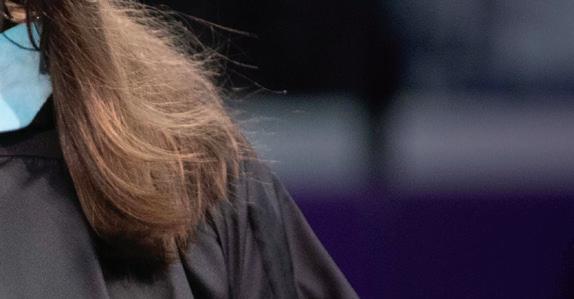


Pass Rate on the Praxis SLLA

*Source: 2024 Tennessee Educator Preparation Report Card, three-year cohort


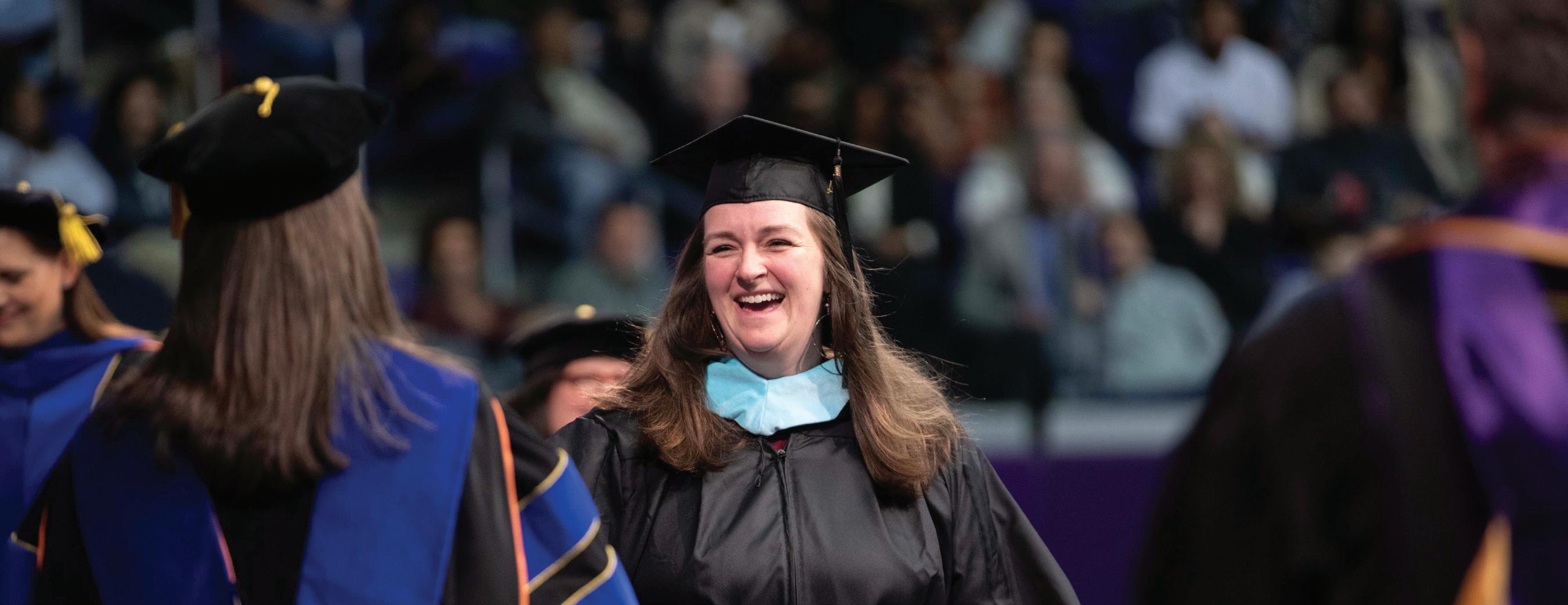




With “school leadership” noted as one of the top two most-cited reasons for teachers leaving the profession, and the state facing a looming retirement boom among educational leadership, the situation is crucial enough to offer leadership training at a particularly affordable price: $10,000 a year (see page 22), said Forman.
The online courses are now offered online asynchronously, eliminating drive time and working around the busy schedule of teachers. Real-world experiences like job shadowing are carried out flexibly within the educator’s own school district in three field experience courses.
“I NOW FEEL PART OF A COMMUNITY THAT HAS THE SAME GOALS AND ASPIRATIONS AND AM EXCITED FOR US TO GROW AND LEARN TOGETHER… WITHOUT THE KERN FELLOWSHIP, THIS LEVEL OF LEARNING AND COMMUNITY SIMPLY WOULD NOT BE POSSIBLE.”
GRADUATE
Lipscomb’s educational leadership program funded by the Kern Family Foundation
Another educational leadership format, the Ayers Fellowship, is producing its 11th cohort this year and has seen 74% of its graduates from the first nine cohorts now serving in a leadership role in 31 districts across the state. “We see really high rates of retention for those leaders in those districts,” said Forman.
Students in the Ayers Leadership Fellowship are paired with a mentor with a track record of success and go on three school tours in Nashville to learn about transformational improvement in achievement and culture in the urban, charter, and special education environments, said Forman.
“Most of the students in the cohort have never had the opportunity to observe teaching and leading outside of their own school or district,” he said. “So these experiences are powerful and help them shape new paradigms of teaching and leading to drive change within their own schools.”
Lipscomb sees an average of 85% of Nashville and Chattanooga TFA corps students continue on to a Lipscomb master’s degree after licensure, said Kelly Bridges, program director for Lipscomb’s TFA cohorts.
A major inducement for these teachers to continue their education is that Lipscomb has allowed TFA corps members to apply their Americorps awards to their licensure and master’s courses, making advanced education much more affordable. That’s a benefit that not all education partners with TFA provide, said Adrian Trejo, TFA’s senior managing director of programs for the Nashville-Chattanooga region.
“That arrangement allows us to recruit from more communities that have not been an option before,” said Trejo.








THE COLLEGE OF EDUCATION IS ALWAYS ON THE LOOKOUT FOR NEW PARTNERS IN ITS QUEST TO ATTRACT THE RIGHT PEOPLE FOR THE RIGHT CLASSROOMS AND TO HELP KEEP THEM THERE THROUGH COLLABORATION. IF YOU ARE INTERESTED IN ACCESSING A LIPSCOMB ACADEMIC PROGRAM OR PARTNERING WITH THE COLLEGE, REACH OUT TO:





The Lipscomb/TFA partnership also brings additional supports to TFA-recruited teachers while they are teaching, said Trejo. “We are creating an ecosystem of support for our teachers that ensures they have a net positive impact, that they are not just developing skills as teachers but the right mindsets about students and their communities where they work. That experience is really important for retention. It can be a lot for new teachers.”
TFA is proving to be a pipeline into educational leadership as well, said Forman. Each year since 2018, TFA recruits five to 15 alums who are energetic and ready to lean into the Nashville Aspiring Leader Fellowship to earn an educational leadership degree at Lipscomb. When they graduate from Lipscomb, TFA helps them to network with hiring managers at MNPS to ensure a timely hire.
In addition to these programs, Lipscomb also offers a Doctor of Education in learning organizations and strategic change and recently began offering a Ph.D. in leadership and policy studies.
Whether it is attracting and preparing new teachers for the education field, nurturing a supportive, informative and collaborative team atmosphere in Tennessee’s schools or providing a path to educational leadership within teachers’ own schools and districts, Lipscomb is devoted every day to addressing the nation’s teacher shortage in a strategic and meaningful way.







Pionero and Lift Off to Lipscomb Programs
Laura Delgado
laura.delgado@lipscomb.edu
Establishing an EPP Partnership
Vanessa Garcia
vanessa.garcia@lipscomb.edu
Noyce Scholars Program for STEM Educators
Kara Krinks
kara.krinks@lipscomb.edu
Establishing an Initial Licensure Pipeline
Ally Hauptman
ally.hauptman@lipscomb.edu
Professional Development or Coaching for your School/District
Karen Marklein
karen.marklein@lipscomb.edu
Enrolling in an Educational Leadership Program
Kesha Walrond kesha.walrond@lipscomb.edu
Enrolling in Graduate Programs
Sean Impeartrice sean.impeartrice@lipscomb.edu
Enrolling in Organizational Leadership-Education
Ted Meyer
ted.meyer@lipscomb.edu
Enrolling in Undergraduate Programs
admissions@lipscomb.edu
To Make a Financial Gift
Bobby Camilleri bobby.camilleri@lipscomb.edu

IMPACT program sends 50 new school counselors into seven Middle Tennessee school systems over two years.
According to the American Psychological Association, the number of young people struggling with anxiety continues to grow, exacerbated by the Covid-19 pandemic and world events.
Stressors such as social isolation, increased family tension, school shootings, political unrest and wars overseas continue to fuel the mental health crisis in youth, making the job of school counselors more important than ever before.
With the numbers of psychologists and school counselors still below needed levels, Lipscomb’s seven-year-old school counseling program is working to fill the personnel and expertise gap.
Enrollment numbers in the program have been boosted over the last two years thanks to a grant from the U.S. Department of Education (DOE), said Lisa Davies, lead faculty for the school counseling program. These funds are provided fully by federal resources and do not come from other sources.
In addition, this past fall the counseling program hosted the School Counseling Collaborative of the Tennessee Department of Education, bringing local counselors to campus to network and share updates in the profession.
All of the 80+ school counselor candidates enrolled in the 2024-2025 school year provided expertise and support to local schools, parents and nonprofits working to help students excel in school and life, said Davies.
“I have witnessed the increase of mental health anxiety among the students, so I wanted to be better equipped to meet the needs of my students, to learn the theories and legalities of talking to kids through challenges,” said counseling candidate Greg Armstrong (MED ’06), a biology teacher at Friendship Christian School in Lebanon, Tennessee, for 20 years.
“There is definitely a need for school counseling through the entire school system.”
Although hired in biology, Armstrong has also taken on the role of a campus minister at the small private school, so he wanted to enhance his skills to become a more holistic mentor to his students.
He joined the school counseling program this past fall, but he said he is already finding value in his studies. “Every class is just so enriching, and I come into class the next day and immediately use those methods in my teaching atmosphere,” he said.
Armstrong has a built-in study buddy, as his wife Shelley Armstrong, a principal in the Lebanon Special School district, is also a student in the school counseling program in the grantfunded cohort.
The IMPACT (Innovative Mental Health Partnership Accessing Counselor Training) Initiative, funded by the DOE grant, is designed to train mental health professionals for high-need local education agencies (LEAs) in the Nashville area, said Davies.
According to the American School Counseling Association (ASCA), the recommended ratio of school counselors to students is 1:250. In Tennessee, the ASCA guidelines are recommended, but state law only requires caseloads of one counselor per 500 students in K-6th grade and one counselor per 350 students for 7th-12th grades.
with community partners Urban Promise, a leadership and enrichment program for refugee youth, and Persist Nashville, a college success coaching program for low-income students, to bring their school counseling expertise to at-risk youth.
All school counseling candidates work to equip future teachers on topics such as mental health and social/emotional health by providing professional development to undergraduate education majors, said Davies. In the past school year, they have also held a webinar for parents from Nashville Christian School on the daily pressures they face with their children regarding time management, emotions and mindfulness, said Davies.

Partner districts for this initiative are Metropolitan Nashville Public Schools, Rutherford County Schools, Maury County Public Schools, Lebanon Special School District, Hickman County Schools, Smith County and Macon County. These were selected based on percentage of students from low-income backgrounds, current student-to-counselor ratio and difficulty filling counselor job openings among other criteria, said Davies.
“WITHOUT COUNSELORS, SCHOOLS RISK MISSING THE HEART OF WHAT EDUCATION SHOULD BE.”
BRIANNA HARRELL (MED ’25) IMPACT cohort member
“We are seeing an increased need for mental health counseling to address specific issues such as depression, anxiety and isolation,” she continued. “With the shortage of licensed school counselors, schools just do not have the capacity to meet all those needs. This grant is helping us remove the financial barriers for those who want to pursue this much-needed profession.”
Twenty-one students in the IMPACT cohort received their master’s degrees this May, after completing 44 credit hours of coursework, 525.5 practicum hours and internship placements in a variety of settings to provide broad experience before graduation. The second IMPACT cohort began in summer 2024 with 20 students from seven school districts enrolling for the two-year-long program.
In addition to serving schools through field work, internships and related training, the IMPACT students work
Several candidates also participated in a spring mission trip to the Caribbean island of Saba, where they worked with students, teachers and parents (see more on page 30).
Aletha Thomas, the school counseling candidate planning the mission trip, has worked in high school education for many years but now sees school counseling as the way she can most help students today.
“I love teenagers. I think it is such a pivotal time for them as they prepare for the career they want to pursue,” said Thomas. “They are on the brink of adult life, and that age group is looking for relationships.”
“We are seeing kids with deep anxiety, and we in Christian education often can’t meet the needs of the students onsite,” said Armstrong. “That is what I’m hoping to do, to shift our philosophy of Christian education and meet the kids where they are. Especially kids struggling with mental health issues.”
Learn more about the first IMPACT graduates at lipscomb.edu/scimpact
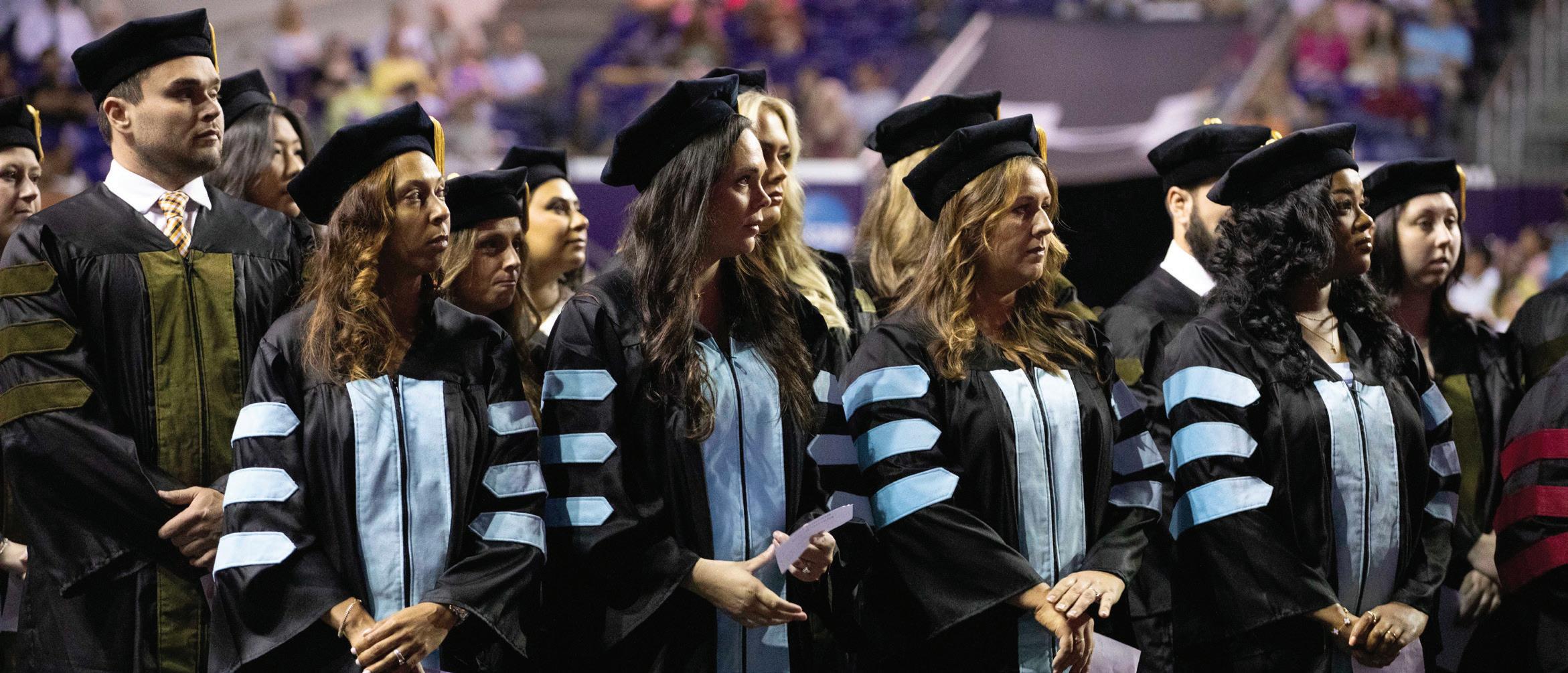
Innovative collaborative and client-based dissertation research model fuels completion rate far above the national average.
In graduate schools nationwide, students stalling out and not completing a doctoral degree is so common, they even have an abbreviation for it: ABD (All But Dissertation).
According to a research initiative launched by the Council of Graduate Schools, 10 years after beginning their doctoral studies, only 56.6% of students have completed their degree.
Lipscomb’s Doctor of Education degree, however, boasts an 89.2% or more rate of students who have graduated or who are today on track to graduate over the past decade.
Of the 202 students from underrepresented racial categories in the program over the years, 80.7% have graduated or are on-track to graduate, also well above other programs nationally. “Though we are not happy with any performance gap, we are still very proud of how well our underrepresented students perform in comparison to national averages,” said Trace Hebert, founding director of Lipscomb’s Ed.D. program and associate provost for research and graduate studies.
There are several choke points that can stall doctoral students as they move through their studies, said Hebert. Students may not be able to find a research partner; they may have trouble developing a meaningful topic or lack the social network to carry out the project or obtain access to the needed data.
When Lipscomb first established its Ed.D. program, discussion about these choke points for students working independently took place on the front end and resulted in a collaborative program model and a client-based dissertation research approach that has proven highly effective in keeping students on track to graduate, said Hebert.
“The collaborative model prepares students to engage in high performance teams, including when it comes to dissertation research,” he said. “This model mirrors how educational leaders actually operate in real educational environments and while conducting research.”
In addition, “students conduct research on real-life educational topics for organizations with real research needs, removing many of the barriers to success
that impact doctoral students across the nation,” he said.
Each year, Autumn Hillis, doctoral research coordinator, seeks out local school systems, public and private schools, higher education institutions and other educational organizations that are seeking answers to problems.
A memorandum of understanding provides a structure, formality and “a weight of responsibility on all parties,” said Hebert. “When students get to the research stage, they already have a willing client, who is ready to work with them, and who is eager to see their research-based findings and recommendations to their organization.”
Hillis has a database of more than 100 organizations that have contracted with the doctoral program for research over the last 15 years.
Lipscomb’s Ed.D. program has partnered with significant educational organizations such as the Tennessee Independent Colleges and Universities Association, the Tennessee Organization of School Superintendents and the National Association of Elementary School Principals as well as with schools in Utah, California and Texas.
Persist Nashville, a college success coaching program for low-income students, first generation college students and students of color in Nashville, for example, could not have carried out the research on its own to fully understand how its programs lead to college persistence, said Jennifer Hill, executive director of the program established in 2019.
“We’re knee-deep doing the work and we want to make sure we are doing the specific work that is most beneficial to students. We are in a cycle of program improvement and redesign, incorporating what we have learned over the last few years,” said Hill. “As a small organization, it would be difficult to hire the kind of research capacity we were able to get through this partnership.”
Ed.D. students Andrew Holt (MED ’14, Ed.S. ’19, Ed.D. ’24), Abby Pitts (Ed.D. ’24) and Raquel Pointer (Ed.D. ’24) worked together to study the different factors that may impact college enrollment and persistence and how Persist Nashville is serving different students based on student ACT scores.
“Learning how to conduct various statistical analyses was helpful, but it was also helpful to just work (and sometimes struggle) through the research process,” said Pitts.
Persist’s three-pronged approach provides success coaching during the college admittance process, coaching while students are in their first year of college and coaching during students’ final years of college as they transition into a career. The Ed.D. students’ analysis found that the coaching during the final years of college, was the strongest predictor of success among the program participants, said Hill.
Pitts, who works to strengthen student retention as the executive director of student support at Cumberland University, said the Ed.D.’s collaborative approach to research is of benefit to all parties.
“The collaborative nature of this project was so important because so much of what we do as professionals is collaborative,” she said. “All three of us on this dissertation team come from very different backgrounds and experiences, but the process of working together produced a much better result than we ever would have generated on our own.”


From 2023 to 2025, 33 Ed.D. students carried out 14 projects benefiting local educational institutions.
Faculty Technology Use in a Higher Education Institution
Angie Allen
Laura Vignon
Tina Jo Finley
The Impact of NatureBased Learning
Brian Bishop
Haley Orred
Cherry Ross
Student Experience in a Hybrid Instructional Environment
Gabrielle Howell
Tiffany Gunn
Students’ Motivation in After-School Literacy
Jennifer Gray
Thommye Kelley
Tyisha Walker
Experiences of Teachers in
EL Training
Nelda Sturgeon
Kim Williams
College Persistence
Andrew Holt
Abby Pitts
Raquel Pointer
In-Service Teacher Training
Jaime Suttle
Alison Brown
Social Emotional Learning
Sophia Krysa
Taylor Cunningham
Teacher Retention
David Myers
Jessie Gholson
Kristan Shields
Parent Involvement with Early Literacy Resources
Karen Whidby
Ashley Tucker
Experience of College Students Related to the Praxis Exam
Heather Boutell
Ashley Couture
Pamela Scretchen
English Language Learning Programs in Higher Education
Nelda Sturgeon
Kim Williams
Sense of Belonging in a High School Hybrid Instructional Model
Gabrielle Howell
Tiffany Gunn
Theory and Practice in Educational Leadership
Rachel Goode
The 2024-2025 school year dawned with five of Lipscomb’s Ed.D. students and graduates appointed into new principal roles in Metropolitan Nashville Public Schools.
• Kate Finn (MED ’16, Ed.D ’19), interim executive principal, Andrew Jackson Elementary Finn has worked at a variety of schools across the country and has 22 years of experience in education, including as MNPS’ District Lead Science and STEAM Coach, and Assistant Principal at Head Magnet Middle School.
• Andrew Holt (MED ’14, Ed.S ’19), principal, DuPont Elementary Holt, a Nashville native, brings 11 years of experience in MNPS as well as a master’s in instructional practice, an Ed.S. in educational leadership and a doctoral degree.
• Colin Hunt (MED ’18, Ed.D ’22), executive principal, Lockeland Elementary Hunt has spent 10 years serving in MNPS schools across the district as a teacher, literacy coach and dean of instruction. In addition, Hunt advocated for students statewide as a TNScore Educator Fellow and a member of the Mayor’s Teacher Cabinet.
• Brenleigh Oswanski (Ed.S ’21), executive principal, Shayne Elementary Oswanski was most recently the assistant principal at McGavock Elementary. She has served in Metro Schools since 2015 as a teacher, instructional coach, dean of instruction and assistant principal.
• Danielle Holdren (MED ’11, Ed.D ’14), executive principal, Hillsboro High Holdren is entering her 19th year in education and has spent the last 10 years working with the Hillwood and James Lawson High School communities as an academy principal.
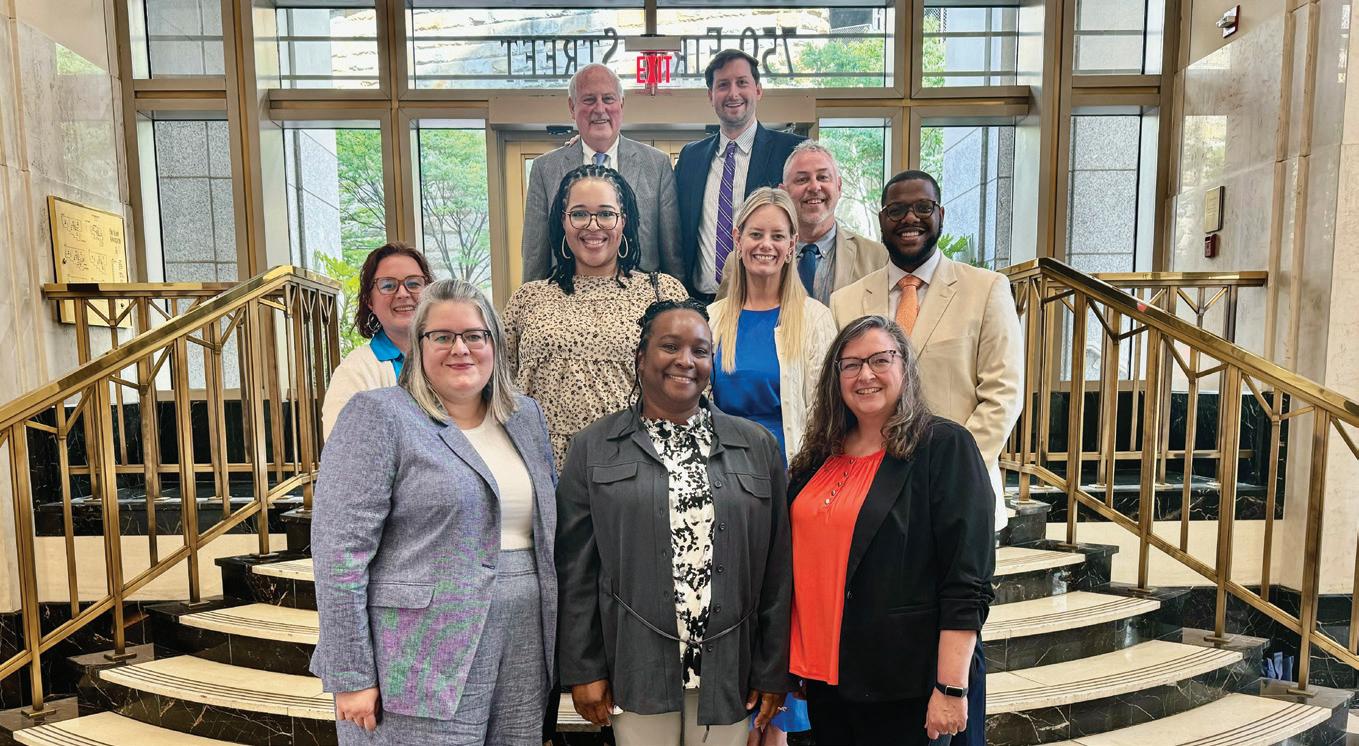
In August 2023, 13 students began their studies in Lipscomb’s newest doctoral offering in education: a Doctor of Philosophy in leadership and policy.
Lipscomb President Candice McQueen (BS ’96) and Trace Hebert, director of the Ph.D. program and associate provost for research and graduate studies, began to vision the new degree not long after McQueen’s arrival and it was determined that the College of Education was the best suited to host the degree.
The skills taught in the program include the ability to organize substantial amounts of information, research subjects broadly, independently manage and complete in-depth projects and to adapt to changing environments.
These skills can fuel graduates’ work in various sectors that include K-12 and higher education as well as public service and health care. “The curriculum is designed to transfer to whichever vocational sector the student comes from,” said Hebert.
Debi Rutledge, dean of retention and engagement at Rochester University in Michigan, enrolled in Lipscomb’s Ph.D. program as a way to not only gain the skills to carry out higherlevel research to address her institution’s challenges, but to also expand her “general knowledge pertaining to leadership and policy regarding students, as well as knowledge specific to the issues I am working with every day,” she said.
“It has definitely driven me forward and has already raised the level of work that I am doing on a day-to-day basis,” she said.
Unlike Lipscomb’s existing doctoral programs–Pharm.D., Ed.D., D. Min. and Ph.D. in archeology–the Ph.D. in leadership and policy appeals to a broader range of potential students, said Hebert. The interdisciplinary nature of the program is one that students are looking for in the market, and unlike the existing Ed.D. program, which uses collaborative dissertation work, the Ph.D. program allows students the flexibility to customize their dissertation research to a subject area they are passionate about.
In fall 2023, the College of Education was invited to become one of four Educator Preparation Providers (EPPs) in the Lead In Literacy Network, convened by the State Collaborative on Reforming Education or SCORE.
SCORE, a nonpartisan nonprofit organization with a mission to catalyze transformative change in Tennessee education, invited four EPPs and four Local Education Agencies (LEAs) to work together to develop solutions for increasing access to strong early literacy instruction for all students in the state.
In a three-year effort, each EPP is partnering with a local school district to construct a shared vision and framework for early literacy instruction and support;

to facilitate aligned experiences for current and future educators grounded in the state’s ELA standards, highquality instructional materials and the Instructional Practice Guide; and translate best practices in early literacy to improve support for all students, including multi-lingual and diverse learners.
College of Education Dean Leslie Cowell has been spearheading Lipscomb’s involvement in the network, hosting meetings of the partners on-campus and visiting LEAs to observe successful early literacy instruction.
Lipscomb offers several academic programs to prepare teachers for literacy
instruction including a Master of Education in instructional practice, grades K-5 with English language learner licensure programming and a reading specialty graduate education program.
In 2023, the National Council on Teacher Quality (NCTQ) named Lipscomb’s graduate teacher preparation program one of the top in the nation for excellence in meeting standards set by literacy experts for coverage of the most effective methods of reading instruction.
In 2024, the College of Education debuted a new organizational leadership degree with an emphasis in education. The curriculum and online format are designed specifically to fit the needs of adults without a bachelor’s degree who desire to work in the education field.
“While education is struggling with a need for more certified teachers, we found an untapped market of working adults who have an interest in moving into the classroom, but who are stymied by the rigorous academic standards and long timeline to obtain their bachelor’s degree before they can even get placed and begin work on becoming licensed,” said Leslie Cowell, college dean.
“This program is designed to overcome those barriers for these individuals who lack a bachelor’s but many of whom are already passionate about education.”
Lipscomb’s existing online organizational leadership bachelor’s program already included the ability to earn up to 30 credits through a portfolio review and leadership skills assessment process, flexible asynchronous online instruction and breadth enough to apply to any field the student may choose to go into.
By adding education courses, a practicum and a Praxis licensing exam preparation course to the curriculum, the education college created a program that not only provides an introduction to classroom teaching but is also a quick turn-around and
potentially cheaper with credit for existing leadership skills.
“The rationale was to support that population of folks who could potentially be teachers, say a day care worker or a veteran para-professional in the classroom, but who need something online, that is flexible in modality and enables them to move into a job-embedded position in a short timeline.”
The program is a 126-credit Bachelor of Professional Studies and prepares students to immediately enter into an education licensure program with the skills necessary for a job-embedded teaching placement.
Email ted.meyer@lipscomb.edu to learn more about this program and the admissions process.

Emily Mofield is making her mark in education with awardwinning books highlighting strategies to educate gifted students more effectively.
Emily Mofield hates to see a good gift go to waste.
Since falling in love with gifted education while teaching in Tennessee’s Sumner County in 2001, she has made it her mission to ensure that no student goes unchallenged in the classroom.
“I believe that we are being good stewards when we help other people grow their gifts and talents for God’s glory,” said Mofield, Lipscomb’s co-director for its gifted and advanced academics graduate program. “All learning should be joyful.”
In addition to teaching in Lipscomb’s education doctorate program and serving in roles with the National Association for Gifted Children (NAGC), the nation’s leading organization focused on the needs of gifted and talented children, one of the primary ways she is getting her message
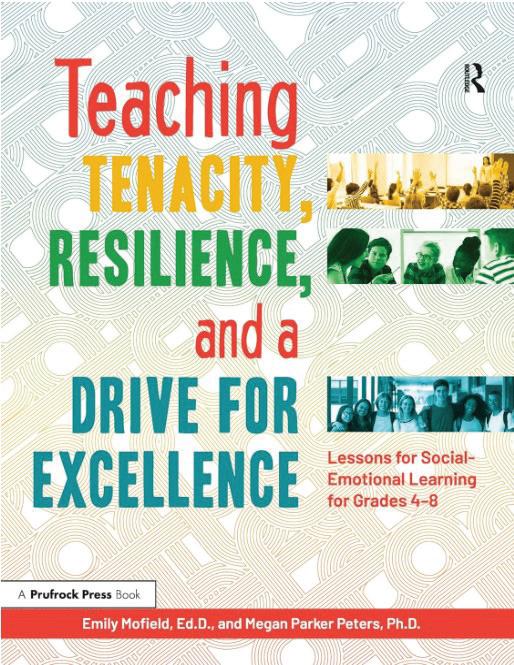

out is through books, 13 in all, including her most recent Coaching in Gifted Education: Building Capacity to Catalyze Change, coauthored with Vicki Phelps.
Two of her books are considered best sellers within the gifted education field. Collaboration, Coteaching and Coaching in Gifted Education: Sharing Strategies to Support Gifted Learners, also co-authored with Phelps, won the NAGC Book of the Year in the Practitioner category and is currently being translated into Chinese.
In 2022, her article “Benefits and Barriers to Collaboration and Coteaching: Examining Perspectives of Gifted Education Teachers and General Education Teachers” in the journal Gifted Child Today was the most downloaded article by more than 7,700 hits in 2022 and by more than 5,300 hits in 2023.
continuum of services where gifted students receive differentiated instruction in the regular classroom.
However, many school districts are finding they aren’t sure exactly how to make an inclusive model effective. In addition, there isn’t much research on how that collaboration should actually work effectively, she said.
“The field of gifted education has begun to see its role through a talent development lens, asking how can we go into the
Since 2020, much of her work has focused on coaching methods for gifted education teachers to use in collaboration with their fellow teachers, as the demand for guidance and knowledge about effective coaching and collaboration has increased, said Mofield.
In 2018 she wrote Teaching Tenacity and a Drive for Excellence: Lessons for Social-Emotional Learning with Lipscomb’s Megan Parker Peters, codirector of the gifted education program, which won the pair a 2019 Legacy Book Award from the Texas Association for the Gifted and Talented.
“I BELIEVE THAT WE ARE BEING GOOD STEWARDS WHEN WE HELP OTHER PEOPLE GROW THEIR GIFTS AND TALENTS FOR GOD’S GLORY. ALL LEARNING SHOULD BE JOYFUL.”
In addition, since fall 2023, she has been invited to discuss instructional strategies to stretch student thinking as a keynote speaker and presenter at academic conferences across the U.S. (see page 36).
Mofield has been researching and developing methods of gifted education since 2011, and her expertise has peaked at a critical moment in the education world, said Mofield. Current education trends increasingly recommend a
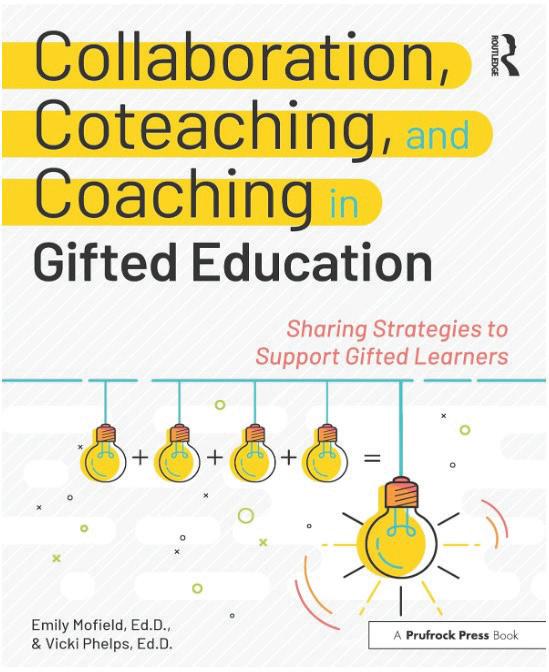

classrooms and expose more students to high-level learning strategies and see how they respond? In that way we are providing opportunities to elevate the learning of all students,” said Mofield.
Mofield’s 2022 book, A Teacher’s Guide to Curriculum Design for Gifted and Advanced Students, written in collaboration with Tamra Stambaugh, focuses on methods to carry out this “talent development” approach to gifted students.
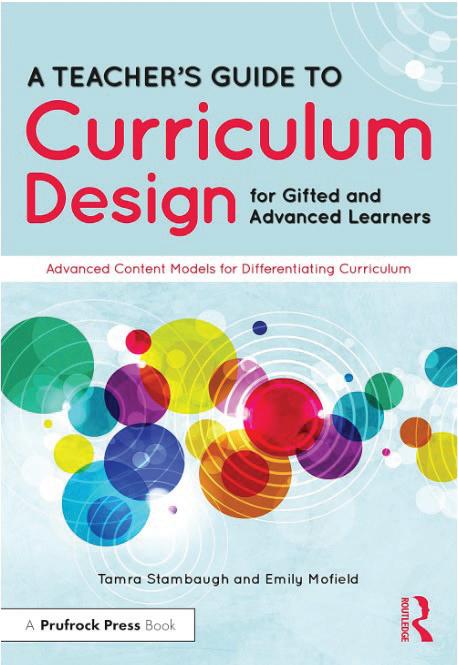

“It is very important for administrators to value and communicate collaboration,” said Mofield. “Collaboration is effective when there is a common framework among the collaborators, when the partners are welcoming and willing to work with you.”
Mofield’s latest projects include a guidebook for teachers, written by her and co-author Chris Weber of the University of North Florida, and published by NAGC. The LEAP Guidebook: Curriculum Design for Gifted Students is a teacherfriendly resource also accompanied by online modules available to teachers for professional development.
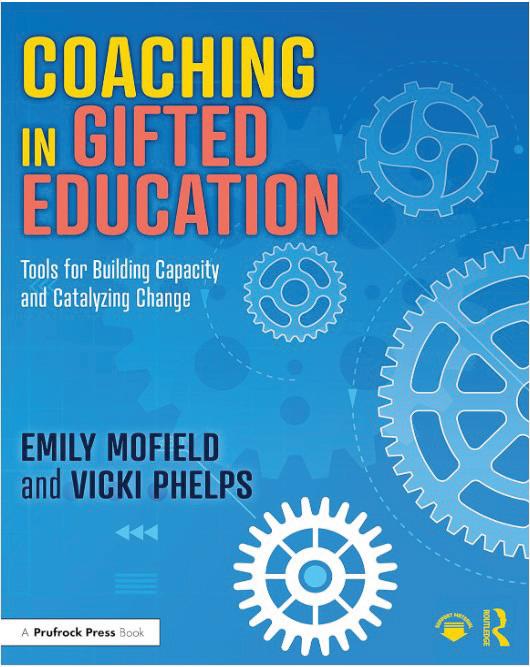

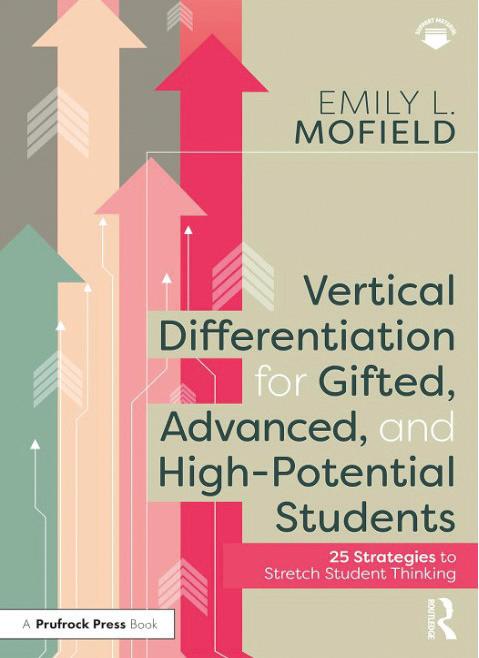

In the spring 2025 semester, Lipscomb’s College of Education debuted a new $10,000 flat fee tuition rate for its educational leadership master’s, Ed.S. and graduate certificate programs.
The flat-free programs are provided in an online, asynchronous learning format, making it not only affordable, but also convenient, for working eeducators who have busy schedules.
“We are working to provide authentic leadership experiences that help current educators grow and in a way that is much more accessible given their busy life.” said Lance Forman, assistant dean of education
specialties. “Driving to our campus is not an option for many, and with many people taking on multiple roles, such as intramural coaching or extracurricular duties, it is difficult to make time for a synchronous Zoom class session.
“We are looking to break down those barriers of access and price to provide a high-quality program. At $2,500 per semester, this is by far the most affordable rate in Tennessee,” said Forman.
Lipscomb’s programs have a 99% pass rate on the Praxis School Leaders Licensure Assessment (SLLA), according to the Tennessee Educator Preparation Report Card.
The university is offering the low price in an effort provide easy access for all educators to a high quality leadership preparation program to combat an anticipated shortage of educational leaders in the next few years.
“We have to broaden access and the best way to do that is to make these degrees affordable and it’s the right thing to do,” said Forman. “We need people who are licensed and ready to step into these jobs on day one.”
Email sean.impeartrice@lipscomb.edu to learn more about this program and the admissions process.
The Educational Leadership Program, funded by a $2.49 million, five-year Kern Family Foundation grant in 2018, came to a conclusion in 2023 having produced 89 holistically prepared, home-grown leaders for Tennessee’s rural and high-need urban school districts.
The innovative leadership development program for aspiring school leaders focused on developing character, academic excellence, conflict management skills and business acumen in rising leaders from areas projected to have educational leadership vacancies and limited resources to develop their own leadership programs.
Of the participants in three cohorts since 2019, about 56% of them are now serving in leadership positions in the partner districts, said Lance Forman, director of educational leadership in Lipscomb’s College of Education.
“This is significant because in Tennessee, there is, usually, a gap of about
eight years between completion of a leadership preparation program and employment as a school leader,” said Forman. “To have so many from the cohorts already leading speaks to the quality of the candidates and the partnership with the districts to tap strong, aspiring leaders from within their own district.”
The educators came together from 21 Tennessee school districts across all three Grand Divisions, hailing from primarily rural areas of
the state as well as larger, urban school districts, to earn a master’s or education specialist degree and the Tennessee Instructional Leader License.
Participating candidates typically came from school districts that may have been geographically isolated from a higher education partner, faced challenges with educator retention from neighboring districts and may have lacked the resources to develop their own internal leadership pipeline, said Forman.
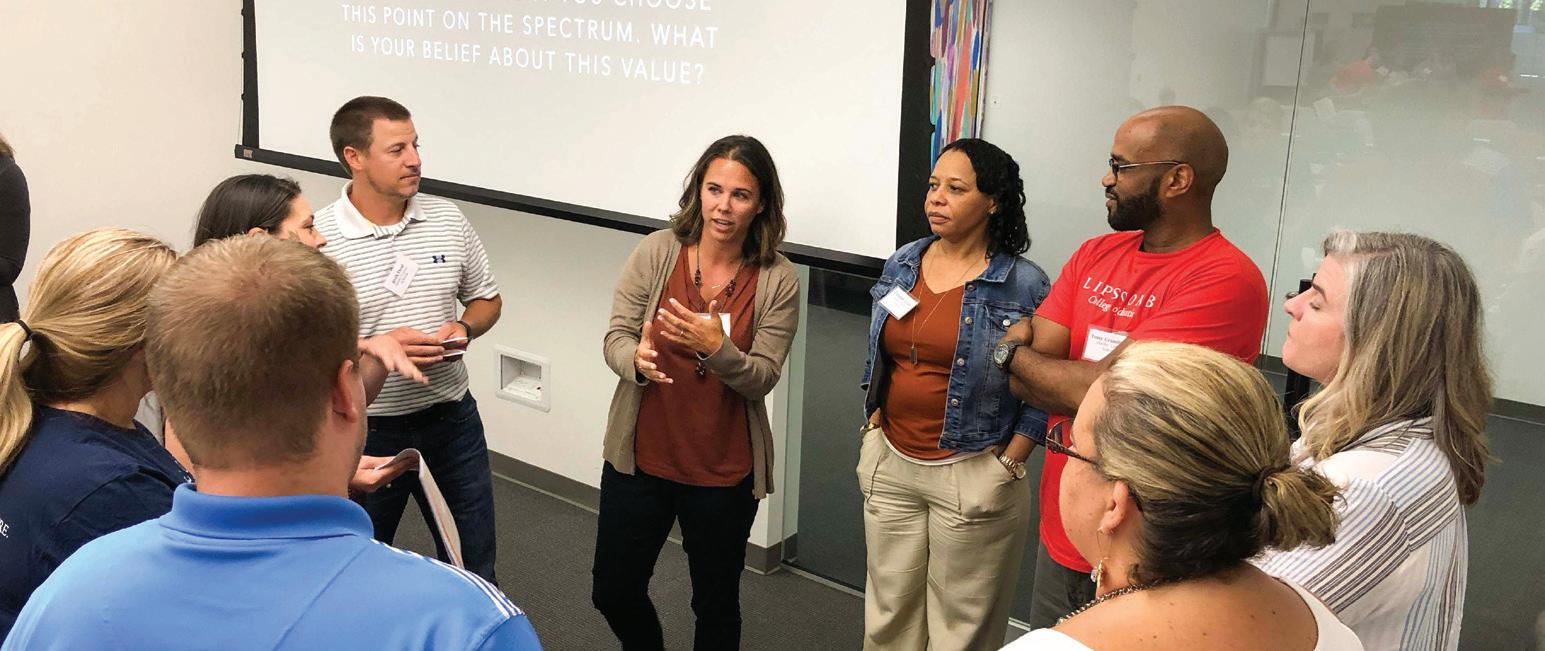
With Nashville’s (and many of America’s) schools full of racially and ethnically diverse students, it is crucial that education graduates are prepared to teach in a multicultural environment. Experience abroad provides teacher candidates with a global perspective that can easily be transplanted back into America’s melting pot.
The year 2025 marks 10 years since Lipscomb joined the Christian College Teacher Education Coordinating Council, now called Student Teaching and Global Experience (STAGE), through Interaction International. Since then, 21 teacher candidates have been
DOMINICAN REPUBLIC

Verna Soliman




placed internationally in countries on four continents around the globe.
These international experiences place teacher candidates in a place where they must adapt to a different culture and language, providing them personal insight into how to support any students who are multilingual learners, said Emily Medlock, director of clinical experiences.
“Teaching abroad broadens students’ view of education and expands their knowledge base for developing one’s approach to education,” said Medlock. “It also builds self-confidence and selfesteem through the experience of travel and independent activity.”

Allison Meadows
International School of Trieste
AUSTRIA
Josie Kastner
International Christian School of Vienna


King’s Christian School

PORTUGAL
Emma Visker (BA ’25), of Michigan, taught at the Christian International School of Prague in the spring.
The Prague school teaches mostly thirdculture students, those who have spent many of their developmental years in a country other than the one their parents were born in, said Viskar.
“These students face unique challenges and have adopted specific strengths that impact their learning. As an educator, it is important to base instruction on students’ strengths and needs,” said Viskar. “Teaching this body of students gave me skills to address a range of cultures and implement that variety as a tool in my future classroom.”
CZECH REPUBLIC
Emma Visker
Christian International School of Prague


GUATEMALA
Leisa Childers
Ashley Keyso
Christian Academy of Guatemala




COSTA RICA
Alex Tate
International Christian School of Costa Rica





Ansley Glenn Sintra
Ember Van Duyne
Black Forest Academy







SPAIN
John Broadwell
Sarah Yates
American School of Las Palmas

COLOMBIA
Carly Detzner
El Camino Academy














SLOVAKIA
Sara Jones International School of Bratislava


CHINA
Emma Woody
International College in Hong Kong





CAMEROON
Jennifer Greene
American School of Yaounde


ALBANIA
Kathryn Williams
GDQ International Christian School





INDIA
Sophie Lantzer
Kodaikanal International School









Chiang Rai International





THAILAND
Emily Bush

Christian School


Ansley Gwin
International Community School of Bangkok

AUSTRALIA
Ashley Bridges
Kylea Smidt
Redlands College







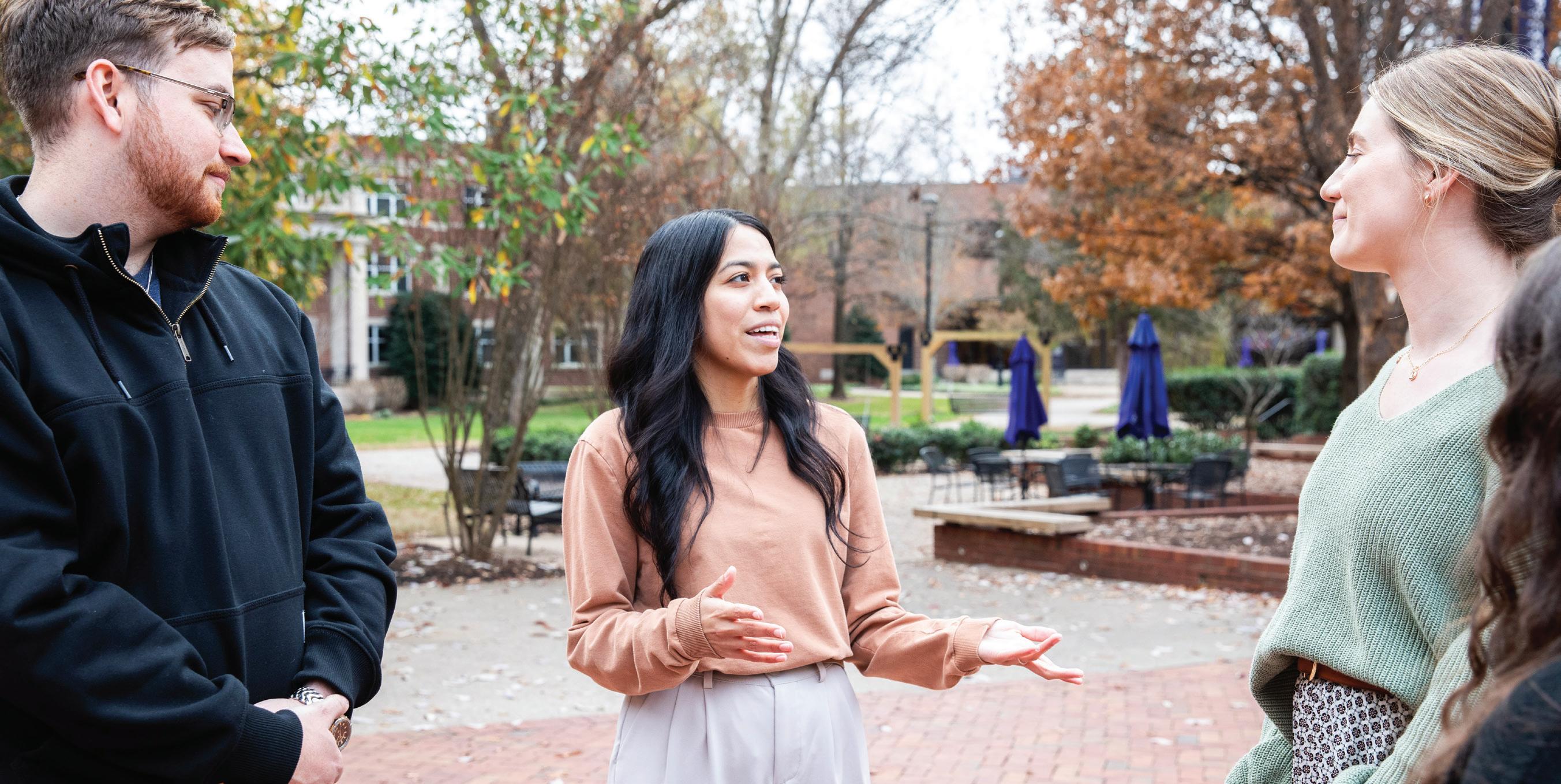
According to the Center for First-generation Student Success, 54% of all undergraduates in the U.S. in 2020 had parents who did not have a bachelor’s degree.
Without a family history of navigating the college admissions and financial aid processes as well as campus life, these first-generation students face greater challenges selecting, applying for and gaining admission to college.
That’s what Angelica Sanchez Barrios (BA ’22), of Nashville, faced growing up. With firsthand attention and financial support from Lipscomb, however, she was able to achieve her dream of teaching in Nashville’s schools. Today she passes on that dream to other Nashville students as an assistant director of admissions at Lipscomb.
The Glencliff High School graduate attended Nashville State Community
College on a Tennessee Promise grant, and then enrolled at Lipscomb through the Pionero Scholars Program, a scholarship and outreach program that seeks to increase the number of Nashville students who become teachers and return to teach in their home communities.
In addition to providing a scholarship, the Pionero program provides dedicated faculty to provide mentorship, access to professional and career-skills development, emotional support and community building, all aspects of student life where first-generation students often lag behind.
Upon graduation, she taught English and writing to 11th- and 12th-graders in ELL sections at Nashville’s Overton High School.
Now at Lipscomb she focuses on Metropolitan Nashville Public Schools (MNPS) students, serving as a personal resource to students and assisting them step-by-step through the college application and financial aid processes.
“I understand them because I also had the financial struggles, but I let them know how Lipscomb worked with me and how they can get the same aid,” she said. “There are people who will support you. I experienced it firsthand. I tell them that it is not easy, but it is doable.”
“I THRIVED TEACHING IN THE CLASSROOM... I LOVED SEEING MY STUDENTS’
MOTIVATION AND THEIR DRIVE.”
Marcos Aguilar’s (BS ’24) journey to becoming a special education teacher at Harris-Hillman School in Nashville was deeply personal. His younger brother, Jesse, was born with multiple disabilities, including cerebral palsy and diabetes insipidus. Watching Jesse’s teachers at Harris-Hillman go above and beyond to provide education, care and emotional support inspired Aguilar to follow in their footsteps.
“My brother’s teachers weren’t just educators. They were counselors, therapists and advocates who cared deeply about their students and their families,” he said. “That experience showed me how impactful a great teacher can be, not just for the student but for the entire family.”
Born and raised in South Nashville, Aguilar is a fi rst-generation college student and is following in the footsteps of his two older sisters who have completed degrees. His parents immigrated to the United States from El Salvador in the early 1990s and have worked hard for their children to have a diff erent upbringing than their own.
Aguilar’s role as Jesse’s brother and advocate has shaped his vision for his own teaching career. He saw firsthand how important it was to his parents that his brother had a caring, qualified educator implementing his Individualized Education Plan (IEP) to the best of their ability.
He is committed to creating a classroom where students with disabilities feel seen, supported and capable of achieving their goals, says Aguilar, who did his student teaching
“I HOPE TO INSPIRE OTHERS TO SEE THE VALUE OF THIS PROFESSION AND THE DIFFERENCE WE CAN MAKE.”
at Harris-Hillman. He is particularly driven by the opportunity to integrate technology into his classroom, empowering students with tools that make learning accessible and engaging.
“It’s amazing to see how advancements in technology allow students with disabilities to participate in ways that were previously unimaginable,” says Aguilar. “I enjoy the challenge of finding the best ways of integrating technology into the classroom, schedule, instruction and curriculum to meet the needs of students. It can be challenging, but when students participate in instruction that is otherwise out of reach, it drives me to continue my job.”
Aguilar has already made an impression in the field. This past fall, he was honored by the Tennessee Educators of Color Alliance as an Aspiring Educator of Excellence (see page 34)
“I hope to inspire others to see the value of this profession and the difference we can make,” Aguilar continues. “We need more special education teachers, male teachers and teachers of color.”







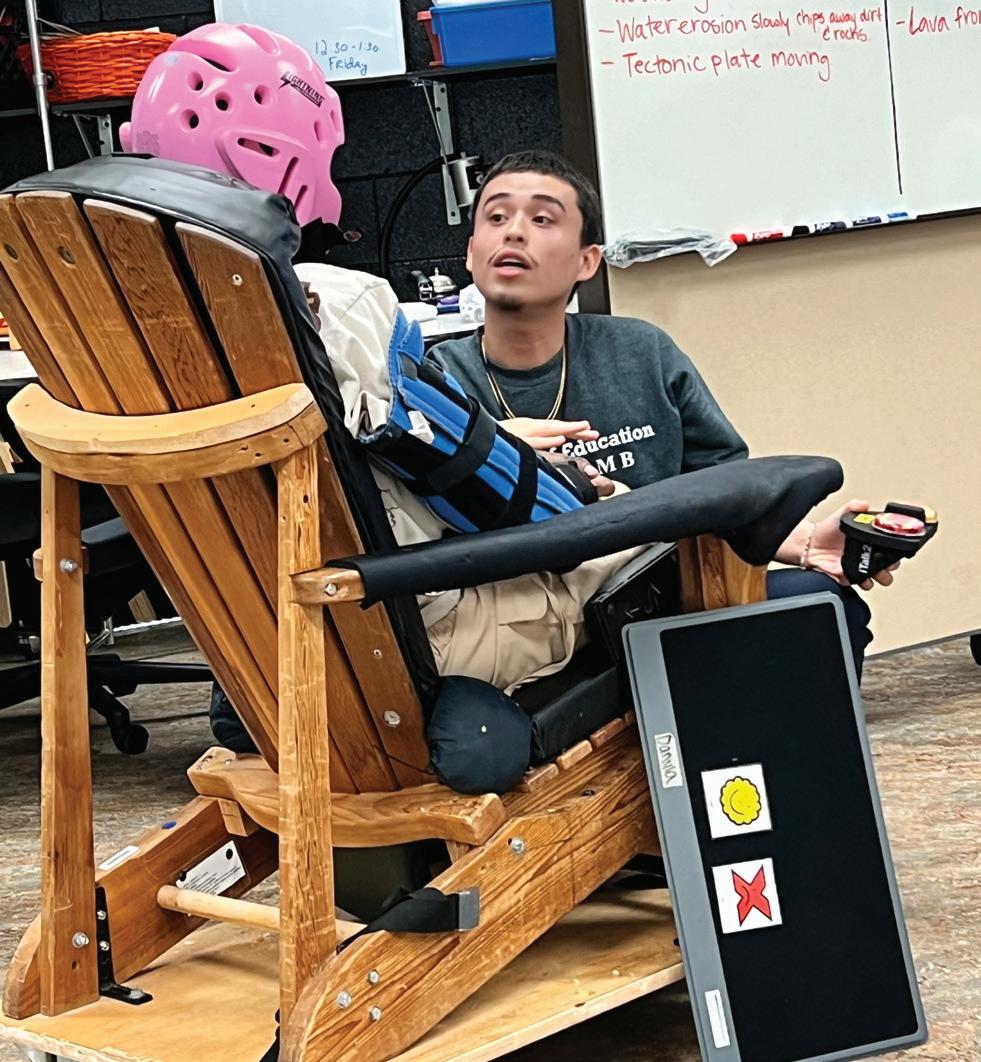

More than 265 K-12 educators gathered in April to explore “Reflect. Renew. Reset.” at the College of Education’s 9th annual Global Voices conference.
The mission of the free conference is to equip and empower local educators as they strive to become informed advocates for all learners, including multilingual learners, said Jeanne Gilliam Fain, director for multilingual learners and literacy in the College of Education.
Lipscomb faculty, master’s and doctoral candidates and education students draw from their expertise and experiences to present on topics such as resilience in the classroom, serving global K-12 students from an international perspective, conflict management in the K-12 classroom, writing grants to support teachers, exploring linguistic support in the content area, strategies for
In 2024 the college co-hosted an event to debut the Nashville Public Education Foundation’s (NPEF) new documentary film, Why I Teach
Aspiring and current teachers, education professionals and public school advocates were invited to Lipscomb’s SPARK Center in downtown Nashville to see the film, which provided an intimate look into the daily lives of three Metro Nashville Public Schools (MNPS) teachers including Lipscomb alumna Celia Bowman-Jeffries (GC ’18) from Thomas Edison Elementary School.
The film and its screening were part of a multi-month campaign by NPEF dedicated to recognizing the hard work and vital role of teachers, sharing their personal stories and motivations and helping to reframe and advance public discourse about supporting educators in the most meaningful ways.
multilingual learners, trauma-informed instruction through an ABA lens, teaching acceptance of disabilities through literature and social-emotional learning, among others. The Book Browsing Room provides educators the chance to browse several newly released and award-winning books, including current global titles for children and young adults. Participants received a professional development certificate, research-based strategies and best practices, books and other resources.
The next Global Voices Conference will be held on April 12, 2026, on the Lipscomb campus. For information on attending the next Global Voices conference for educators, contact Fain at jeanne.fain@lipscomb.edu.

Lipscomb sponsored the screening and co-hosted a panel discussion after the film that featured insights from MNPS educators and public education experts, including Fain, who directs Lipscomb’s ELL program. Panelists discussed the realities of teaching in Nashville, advice for incoming teachers and ongoing efforts to ensure teaching is a sustainable career amidst evolving demands.
Why I Teach is available for viewing at nashvillepef.org/why-i-teach/.
For the past two years, Lipscomb undergraduates partnering with Jeanne Gilliam Fain, professor and director for literacy and multilingual learning, have been making waves with their research of children’s picture books’ depiction of immigration.
In March 2023, the work of three undergraduates, “Examining Key Aspects of the Environment in Immigration Stories through Visual Analysis in Picture Books,” was presented at the 2023 International Research Society for Children’s Literature (IRSCL) Congress, Ecologies of Childhood, in California.
Student presenters were Ella Saakian, law, justice and society major; Emma Salvitti, family science major with a focus on mental health professions; and Camden Fain, communications major.

This student team chose to do an analysis of color in pictures in selected children’s literature about immigration journeys, with the aim to assist teachers in providing inclusivity within book selection in an elementary language arts curriculum.

high-quality instructional materials used in Metropolitan Nashville Public Schools. Through their analysis of four books, the student team found that both old and new books present a thoughtful reflection of the immigrant journey, but that newer books provide more depiction of feelings surrounding leaving home as well as the hopeful feelings for the future and focus more on the journey itself.
Fain and Sarah Duncan, associate professor and lead faculty for reading
“After analyzing the picture books using codes of color, perspective, position and size, and line, I feel like I have more of a basis of what to look for when I am reading picture books. I have realized that they are much more in depth than I realized,” said one of the student researchers in their evaluation of the experience.
After the conference, Fain was contacted by children’s book publisher Lee & Low, requesting information about the analysis the students used in their study. The publisher ended up using the analysis model created by these students to create a bibliography for teachers listing all the books on immigration the company has published over the past 25 years, said Fain.
“IT’S EXCITING TO SEE UNDERGRADUATE STUDENTS HAVE THE OPPORTUNITY TO POSITIVELY AFFECT LOCAL SCHOOLS IN REAL TIME.”

In March 2024, a new group of undergraduates began working on a similar study intended to solve a problem that teachers are currently experiencing. The group chose to analyze the depiction of the immigrant experience in both older and newer books included in the approved


specialty, took the five undergraduate students to the Georgia Conference on Children’s Literature to present “Immigrant Journey Picture Books.” Student presenters in 2024 were Erica Diaz, secondary English education major; Kayla Hill, K-5 education major; Sami Sanders, K-5 education major; Shelby Hallett, secondary English education major; Ashlynn Perry, secondary English education major; and Emma Sutton, art education major.






Fain, who had not worked recently with undergraduates before as a faculty member who focuses on graduate-level courses, said the undergraduate students’ work is not only at a level that is publishable, but that it will also likely spark continued research efforts to create a convenient tool that teachers can use to assess how culturally inclusive a particular book may be as they are developing their lesson plans.



“It’s exciting to see undergraduate students have the opportunity to positively affect local schools in real time,” said Fain. “I think it’s easy to underestimate the phenomenal research skills that undergraduates possess.”




Almost three years after its preliminary launch, Lipscomb’s Christian Educator Program (CEP) has grown to include 42 teacher candidates enrolled in the 2024-2025 school year and boasts nine partnerships with local Christian schools.
Launched in August 2022, the CEP equips educators through a specialized licensing and graduate pathway to fill teacher shortages and preparation gaps in K-12 Christian schools. Since its inception, the program has grown steadily, driven by strong partnerships and donor support, especially from the Bobbie Solley Foundation.
Director Suze Gilbert has worked diligently to expand the program’s reach and deepen its impact, growing the program from five teacher candidates in 2022 to an expected 43+ by fall 2025.
Partner schools now include: Columbia Academy, Lipscomb Academy, Middle Tennessee Christian School, Goodpasture Christian School, Lighthouse Christian School, Nashville Christian School, Mt.
Juliet Christian Academy, Friendship Christian School and Grace Christian Academy.
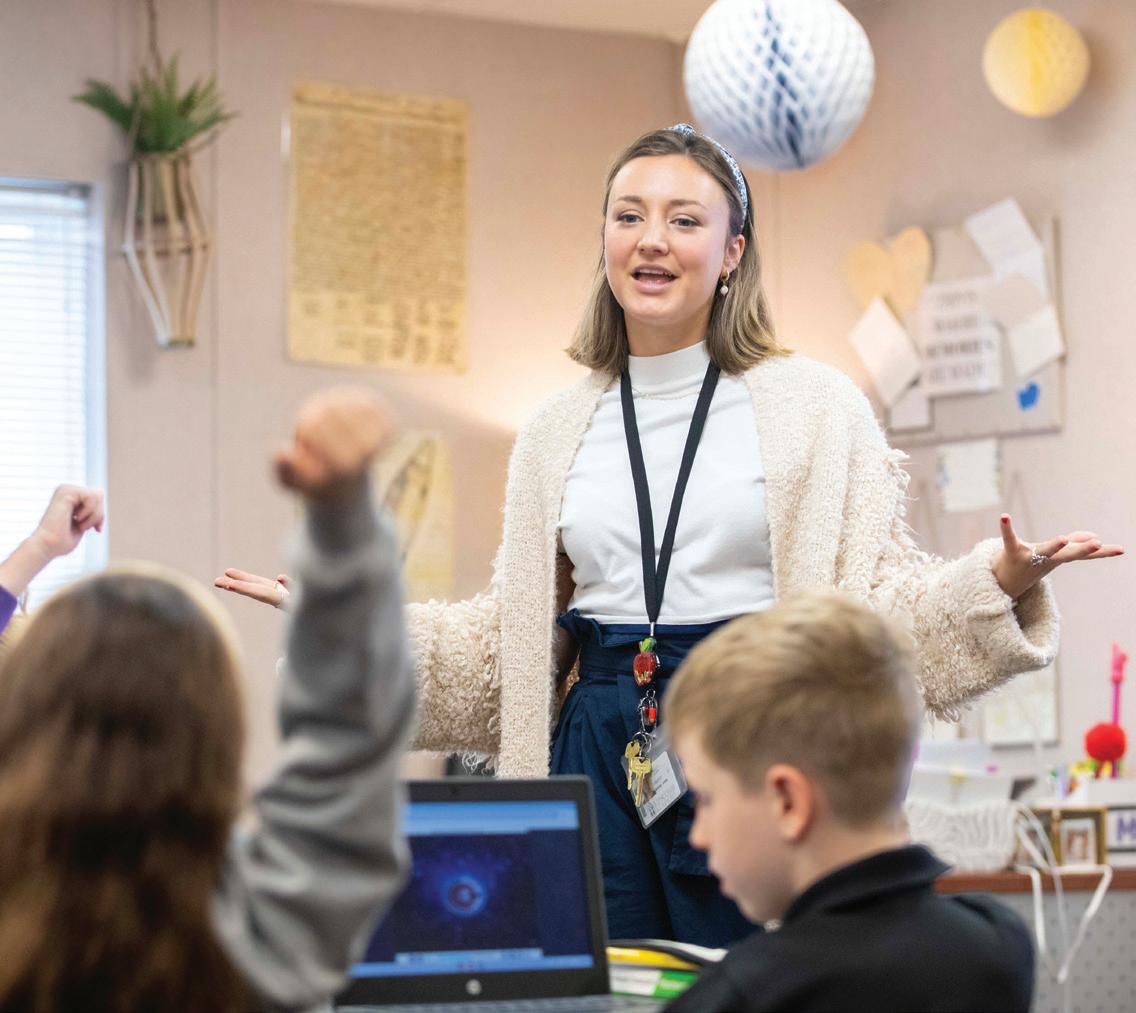
As the nation faces a teacher shortage, Christian schools experience a wider gap as they must hire teachers who may not have been trained specifically to teach in a Christian setting, said Gilbert.
Through the graduate-level CEP program, aspiring teachers are recruited from Christian schools in Middle Tennessee to receive training leading to licensure or to pursue a Christian Educator Certificate as a part of a graduate degree. Graduates then return to the partner school to teach. Recruited teacher candidates receive a 50% tuition discount on the courses.
Eleven candidates so far have completed the graduate-level CEP program, earned their state teaching licenses and are now actively teaching in classrooms across the partner
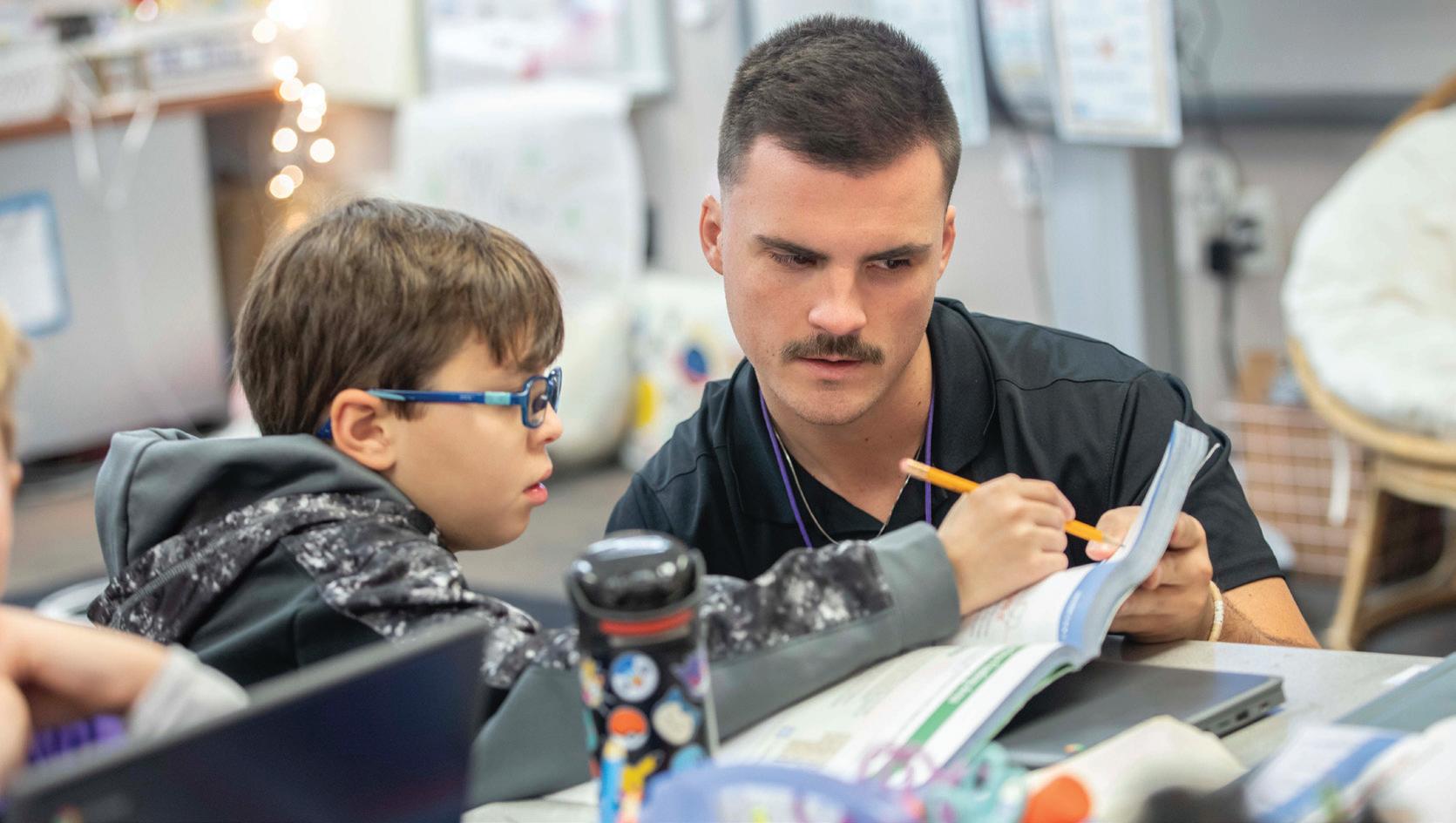
schools. Five of those are furthering their education at Lipscomb by working toward full master’s degrees.
The CEP undergraduate program offers the Undergraduate Christian Educators Certificate to education majors. The certificate curriculum was refined by Gilbert in fall 2023 to provide students with five key experiences linked to their coursework focusing on faith integration and professional development within Christian school settings.
These students enjoy extra classroom experiences that highlight how to achieve Biblical learning objectives as well as the state’s learning objectives, a mentor relationship with a Christian school educator and guaranteed placement in at least one Christian school for a practicum experience, said Gilbert.
The certificate curriculum ensures that students are not only prepared to teach but are also grounded in the unique challenges and opportunities of working in Christian educational environments. Twenty-five undergraduate candidates pursued the certificate in the 2024-25 school year, which provides a Christian Educator Designation on their transcripts.
“These future educators are being equipped with the tools and spiritual foundation necessary to make a lasting impact in Christian schools,” said Gilbert. “The Christian Educators Program is poised for further growth and continues to be a key part of Lipscomb’s mission to prepare teachers who are not only academically qualified but also deeply rooted in their Christian faith.”






To say that Bobbie Solley (BS ’79) is passionate about teaching is an understatement.


The long-time education veteran has taught school-age and collegelevel students in multiple states, has worked in various academic roles in higher education and has even taught teachers around the globe as the international education director for Healing Hands International.

In 2023, the Solley foundation contributed to the Lipscomb Christian Educator Program, a pipeline initiative to fill teacher shortages and preparation gaps in K-12 Christian schools. The university enrolled its first cohort to create a pipeline of specially-trained teacher candidates for faith-based schools in August 2022.


“I believe teaching is one of the most noble professions one can enter. To shape and mold the life of a child is the greatest gift one can experience,” said Solley, “And when I discovered that I could impact teachers who would then impact hundreds of children, my passion for teaching increased.”

Solley had been teaching teachers in Texas, at Middle Tennessee State University in Murfreesboro, at Lipscomb and through Healing Hands since 1986, but in 2015, she began supporting the educational needs of children in a new way—through her own foundation.


“I wanted to be able to support a program that trains teachers in the Biblical worldview and how they can draw on that worldview in the classroom,” said Solley. “That’s why I wanted to give to this particular program.”
The grant from the foundation allowed Lipscomb to designate Suze Gilbert, associate professor of education, as the program director and to oversee developing a curriculum.


Solley, a former adjunct professor at Lipscomb, certainly saw the potential for Lipscomb specifically to impact generations of the future.
“Besides Jesus, the single thing that will turn nations and countries around is education,” Solley said. “Children will grow up to be better decision-makers and thinkers.”

The Bobbie Solley Foundation supports literacy programs in the schools of Peru, job skills programs in Nairobi, Kenya, school supplies for Honduran students and educational training for families, among other programs.


“My goal from the very beginning has been to help teachers understand a more effective way to teach children to read,” said Solley, who created the Middle Tennessee Writing Project in 2005 and has published two children’s books herself. “I want children to read for many reasons, but my main reason is so they can come to know the Bible and understand what Jesus calls them to be.
“With reading comes understanding, and with understanding comes change.”





Graduate and undergraduate education majors enrich students in NYC and Saba and gain new cultural experiences on 2024 and 2025 mission trips
Since 2002, College of Education majors have had the opportunity each year to travel to New York City over spring break to work with students in the South Bronx through the nonprofit ShilohNYC. During spring break 2025, however, the college’s school counseling program launched its first international mission trip, offering graduate students a second mission opportunity, this one in Saba, an island in the Caribbean.
Lisa Davies, lead faculty for the school counseling program and counseling candidate Aletha Thomas of Woodbury, Tennessee, coordinated the trip.
Thomas and her husband, Michael (BS ’99), lived in Saba—Michael in medical school and Aletha teaching in the high school—when Lipscomb began sending a group of undergraduates there to carry out mission work in 2003. They left Saba shortly after that first mission trip but continued to be involved in every Lipscomb mission trip that has traveled to the island since then.
Today, Aletha teaches at Watertown High School in Tennessee and enrolled in Lipscomb’s school counseling master’s program in 2023. Through conversations with Davies, the pair decided to offer school counseling students an opportunity to go along with the regularly scheduled undergraduate mission trip in March.
Four school counseling students, Julie Gibbons, Grace Gaccetta, Maggie Randlett, Thomas and Davies provided lessons on social-emotional issues centered on Biblical principles and incorporating stories focused on Jesus, and discussed anti-bullying with a “cultivating kindness” perspective. Middle and high school classroom lessons, individual sessions and a parent workshop were all presented by the team during the week.
“Team members and those on Saba found the school counseling partnership a positive and needed addition to the work on the island,” said Thomas.
“I FELT GOD SO CLOSELY ON THIS TRIP AND I SAW HIM WORKING IN THE LIVES OF THE STUDENTS AROUND ME.”
“The students at the school were amazing in welcoming us to not only teach them but to also participate in after-school activities,” said Davies.
“For a few participants, this was their first mission trip. Each school counseling candidate enjoyed being a part of the culture,” she said. “Our shared experiences of delivering lessons within the school gave us an opportunity to step outside our comfort zone, fostering personal growth and an opportunity for reflection and spiritual growth.”
The NYC trip is coordinated through partner ShilohNYC, a Christian nonprofit organization offering community programs that enrich the lives of youth physically, mentally and spiritually. Lipscomb’s mission teams work in the public schools to support the teachers, staff and students in their school day and to connect them with the mission of Shiloh to equip New York City at-risk youth and their families with tools that build hope, confidence and the skills to attain their goals.
In 2024, Morgan Botts, a junior special education major from Goodlettsville, Tennessee, and Bayleigh Pirtle, a junior disability studies major from Hendersonville, Tennessee, participated in the trip.
In 2025, Jillian Utley, a sophomore English education major from Nashville; Leah Campbell, a graduate student in education; Ryleigh Langton, a senior history education major from Michigan; and Kenna Otero, a junior elementary education major from Nolensville, participated on the trip.
Botts and Pirtle worked as teacher’s assistants in a second-grade inclusion classroom. They aided in classroom management, had the opportunity to lead small groups, play educational games and eat lunch with the students throughout the week.
“Being able to participate in every aspect of my students’ day allowed me to build
strong relationships with all of them,” said Botts, who enjoyed seeing an urban school setting completely different from the one she grew up in.
“A lot of my students also had experienced trauma,” said Botts. “I learned how to love these children despite not understanding the things they have seen in their community. As a future special education teacher, I value any chance to experience children with different backgrounds and experiences.”
“My favorite aspect of the trip was getting to connect and build relationships with so many students and faculty members,” said Pirtle. “I was able to broaden my perspective and step outside my comfort zone.
“I felt God so closely on this trip and I saw Him working in the lives of the students around me,” said Pirtle. “I pray for the
students I met very frequently and I thank God for giving me the opportunity to go on this trip.”
On the 2025 trip, Utley was in a classroom with 3-year-olds and primarily helped the teacher with crafts and played with the children in activity centers. She colored with first-graders during recess and taught Spanish-speaking students English words.
“The first day we stepped into the school a lot of us noticed how different it was there compared to the schools we are used to,” said Utley. “We will never forget this awesome experience and it will be in our hearts forever!”
In addition to the trip coordinated by the missions program, Davies and some education majors also offered online tutoring to the youth involved with ShilohNYC programs during the Covid-19 pandemic.

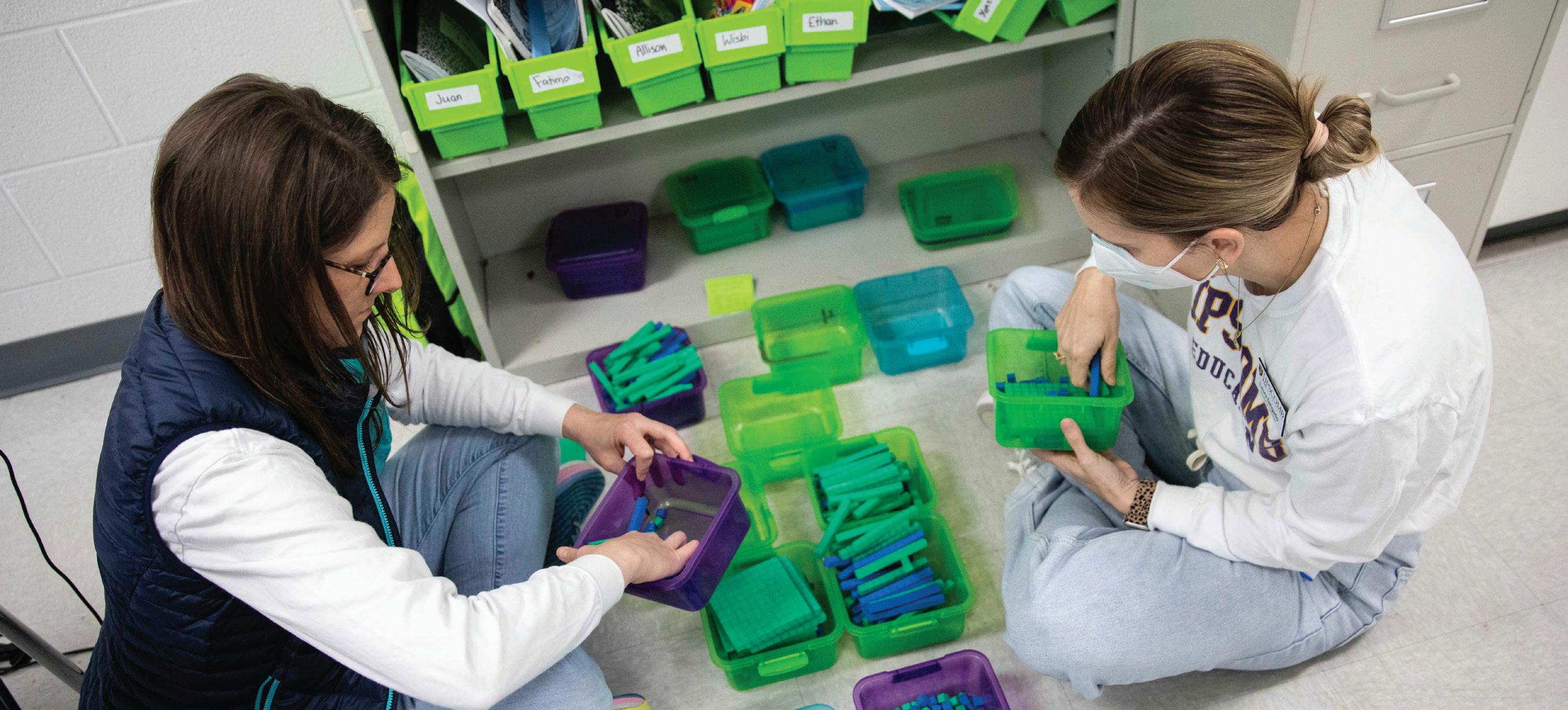
In 2024, College of Education faculty made a point to live out the college’s guiding truths with feet on the ground to serve in local Nashville schools.
Cane Ridge Elementary, Robert Churchwell Museum Magnet Elementary School, Bellshire Elementary, Jones Paideia Magnet Elementary School and The Covenant School were the beneficiaries of three faculty-wide service projects.
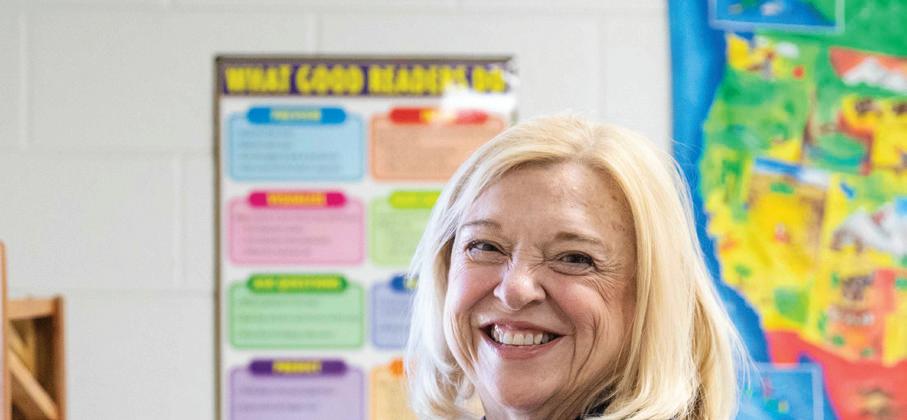



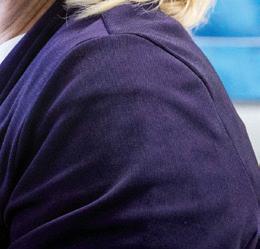



In spring semester 2024, faculty visited Cane Ridge Elementary to work directly with students and to support teachers by organizing resources and classroom equipment and helping with paperwork.
In fall semester 2024, faculty volunteered with the Governor’s Early Literacy Foundation to staff the Opportunities With Literacy, or OWL Fest, event, a curated bookstore and shopping experience for pre-K-5th-grade students at 41 Comprehensive Support and Improvement (CSI) schools across Tennessee.
OWL Fest provides each student with six free books to take home and start their own home library. Students are allowed to select from a vast selection of free books provided by Scholastic. Lipscomb faculty were stationed at Churchwell, Bellshire and Paideia to operate the “bookstores” and hand out the selected books.
Finally, in March 2023, when The Covenant School, a Presbyterian elementary school less than three miles from the Lipscomb campus,
suffered a deadly school shooting, College of Education officials reached out to help the school’s students and educators move forward from the tragedy.
Less than a month after the tragedy, the school opened for classes at the nearby Brentwood Hills Church of Christ, and Lipscomb’s education faculty was there to serve lunch, pray and encourage the teachers on their first in-service day before classes started in the new location. The next day, volunteer faculty returned again to help teachers set up their classrooms.
“It is really important to me that our faculty not get disconnected from day-to-day life in the schools,” said College of Education Dean Leslie Cowell. “It just really helps us, as college faculty, to get focused back on what we’re actually doing: preparing teachers to serve students. The more we can get back into school buildings, the more it helps keep us connected to what’s happening in schools on a day-to-day basis.”
In response to changes in Tennessee’s requirements for public school educators and students, the College of Education launched a new computer science non-degree endorsement program for K-12 educators this past summer. This program, developed in collaboration with Lipscomb’s School of Computing, aims to equip K-12 educators with the necessary skills and knowledge to effectively teach the now required computer science courses. The endorsement program consists of four courses, totaling 12 class hours. Educators can choose to complete the program by taking two courses in the fall and two in the spring, or by
enrolling in all four courses during the summer session. Courses are offered synchronously online to accommodate the busy schedules of educators.
Educators who complete this endorsement can complete another graduate certificate program in addition to one research course to turn this certificate program into a full Master of Education degree. The stackable master’s degree (M.Ed.) allows candidates flexibility in crafting a degree program that is customized toward personal educational and career goals.
Stackable options are available for licensed teachers, for initial license candidates and for those who seek to broaden their leadership skills in a variety of ways. In addition to the new computer
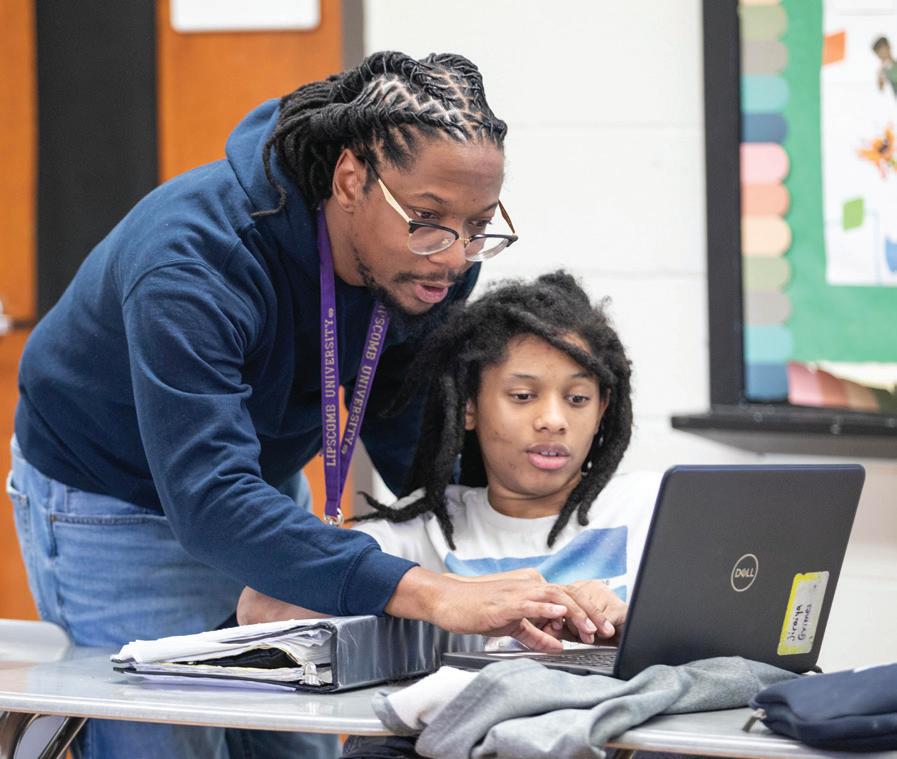
science endorsement program, certificate programs are available in English Language Learning, Gifted Education & Advanced Academics, Instructional Coaching, Reading Specialty, Special Education, Leading in Curriculum and Instruction, Educational Leadership and the Christian Educator Program.
The College of Education deeply values our school and district partnerships. Through mentoring and support, our candidates gain valuable real-world experiences that allow them to put theory into practice. The expertise and guidance provided by our school-based mentors significantly impact the learning and growth of our current and future educators. Our clinical experiences have become a hallmark of our programs at the College of Education.
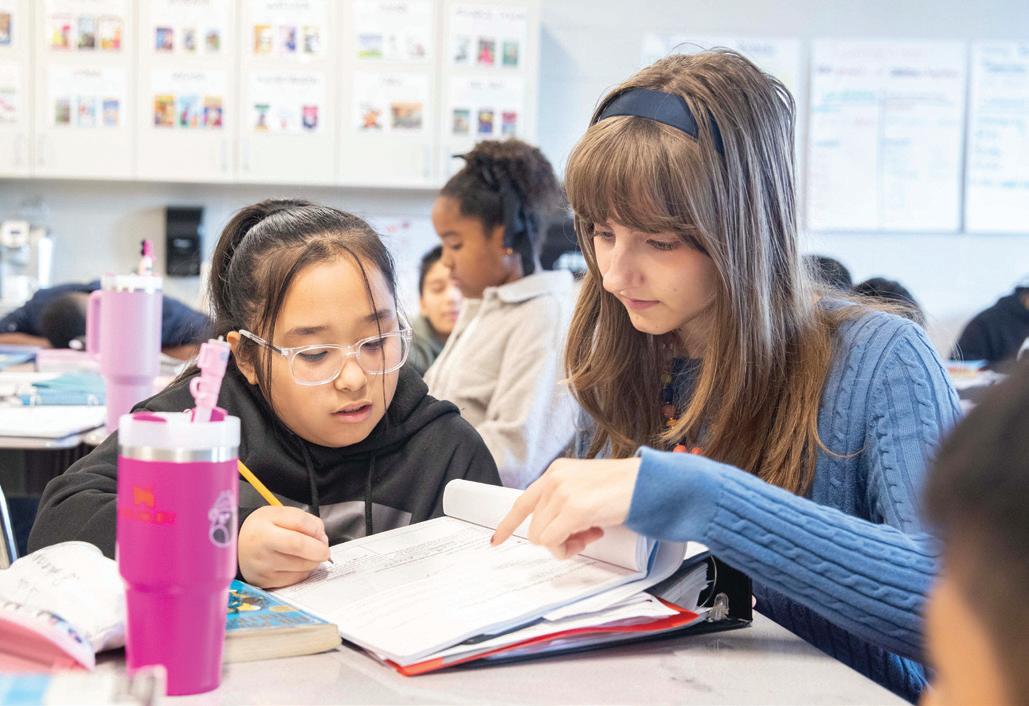
Cannon County
Cheatham County
Christian Presbyterian Academy (CPA)
Clay County
Coffee County
Columbia Academy
Dayspring Academy
Dickson County
Ezell-Harding Christian School
Goodpasture Christian School
Hamilton County
Lawrence County
LEAD Public Schools
Lebanon Special School District
Lipscomb Academy
Metropolitan Nashville Public Schools
Middle Tennessee Christian School
Mt. Juliet Christian Academy
Murfreesboro City Schools
Nashville Christian School
Nashville International Center for Empowerment
Oak Hill School
Otter Creek Kindergarten and Preschool
Pope John Paul II
Preparatory School
Rutherford County
Smith County
Sumner County
Wilson County
Williamson County
In April, Laura Delgado, program director for the Educator Scholars program, was named a 2024 Champion of Education Equity by Equal Chance for Education (ECE), a Tennessee nonprofit that partners with 15 colleges and universities statewide to provide student scholarships without regard to race, religion or nation of birth.
Since 2015, Delgado has coordinated Lipscomb’s Pionero Scholars program, and since 2022 she has also coordinated the MNPS Lift Off to Lipscomb program, both scholarship and outreach programs that seek to increase the number of local students who enroll at Lipscomb and return to teach in their home communities in Nashville.
As a component of her support for students enrolled in the two Lipscomb Educator Scholars programs, Delgado renewed the university’s relationship with ECE, which now provides scholarships to seven-to-10 Lipscomb students each year. As part of the LipscombECE partnership, the university agrees to discount tuition for students who are awarded ECE scholarships.
ECE founder Michael Spalding described Delgado as a great ally to the foundation, which was founded in 2014 as a private source of funding for students living in Tennessee who are unable to access in-state tuition due to their legal status. Spalding individually financed a personal friend to attend Lipscomb, and through that experience, decided to establish a nonprofit foundation to raise funds for similar scholarships.
A third-generation Cuban-American, Delgado works to recruit high school graduates to Lipscomb’s Educator Scholars program and coordinates support programming for the education majors during their college years. She also helps with on-campus programming for students who are first in their family to attend college or who are immigrants themselves.
She was also a finalist for the Nashville Emerging Leaders in 2019 and won an award from the Association for Independent Liberal Arts Colleges for Teacher Education in 2020.
Vanessa Garcia and Ally Hauptman were honored in 2023 with Lipscomb’s second recognition from the Association for Independent Liberal Arts Colleges for Teacher Education (AILACTE) for community partnerships.
Garcia, now assistant dean of community engagement and strategic partnerships, and Hauptman, now assistant dean for teacher education, were awarded the AILACTE Partnership Award, presented to those who have significantly engaged in substantial P-12 partnership.
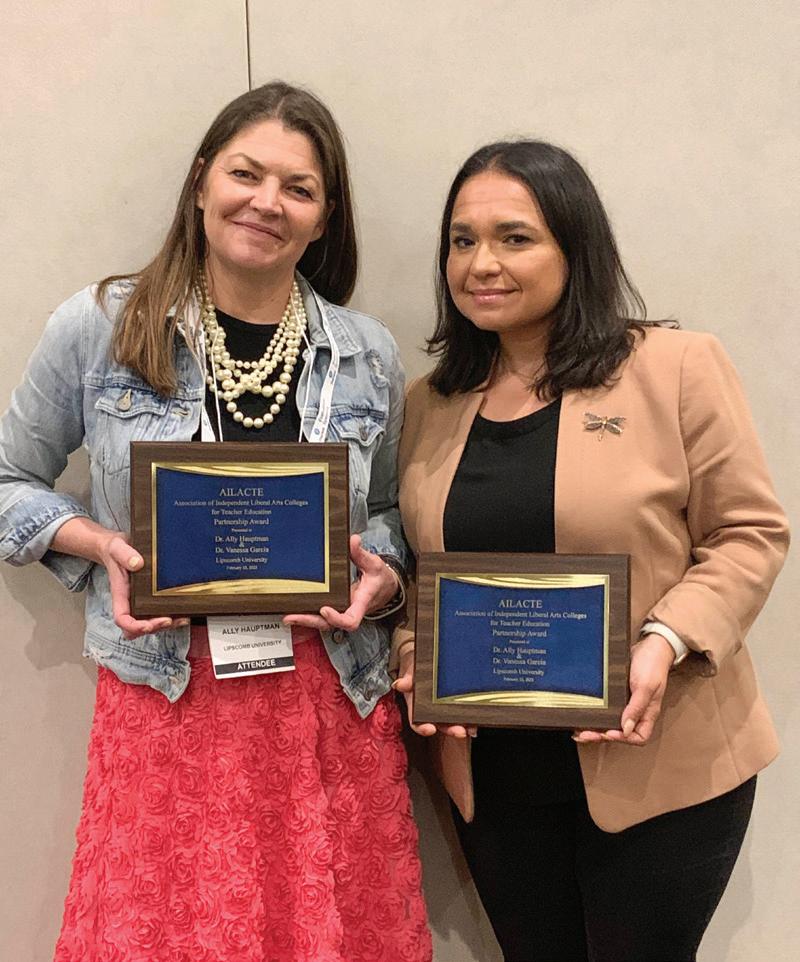
Garcia and Hauptman led the effort to establish and implement partnerships with various Tennessee K-12 school districts to create the COE’s Grow Your Own program, creating a funnel for local school employees and community members to become classroom teachers in their home districts.
The purpose of the AILACTE Partnership Award is to recognize quality partnerships where each partner has structures and resources to support the work of the collaboration. Garcia and Hauptman’s efforts have led to a nocost education leading to licensure for hundreds of educators in the cities of Clarksville and Nashville as well as Hamilton, Rutherford and Williamson counties through a state funding program now called the Tennessee Teacher Apprenticeship program.

In September, Marcos Aguilar (BS ’24), special education major, was honored by the Tennessee Educators of Color Alliance as an Aspiring Educator of Excellence at the E3: Elevating Excellence in Education Awards Dinner. The E3 Dinner is the annual fundraising event for the organization which works to provide high quality programming and networking opportunities to support and retain educators of color across the state of Tennessee.

In October, the State Board of Education announced Rachel Cornett, assistant professor, as one of 21 educators across the state selected for its Educator Advisory Team to review Tennessee’s current English Language Arts standards.
The team members were selected from 297 applications, the highest number the state board office has received. The team reviewed the standards considering comments on public feedback surveys and their own personal experience as distinguished educators in working sessions held in November.
Cornett has 16 years experience as both a classroom educator and K-5 academic interventionist in Rutherford County Schools. Before coming to Lipscomb, she had served as an adjunct professor at Middle Tennessee State University and on the Tennessee Department of Education’s Early Literacy Council. She has been involved with the state department of education’s literacy trainings over the last 10 years, both developing and delivering statewide professional development.

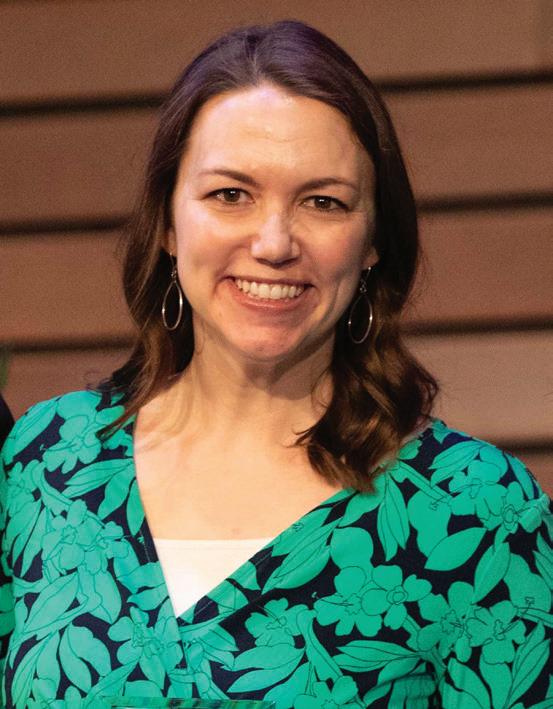
FACULTY EXCELLENCE: Lisa Davies (BS ’85), assistant professor and lead faculty for school counseling, and Sarah Duncan , edTPA coordinator and professor, were awarded Lipscomb’s annual Cowart Faculty Excellence Award in Education in 2024 and 2025. Four years ago, Dick Cowart , chair of the Lipscomb Board of Trustees, and his wife, Becky , established the Faculty Excellence Awards in honor of his mother, who was a teacher. Davies’ school counseling experience includes elementary, middle and high school levels within the Middle Tennessee area. Davies is currently a member of the TN Educator Preparation Working Group and the American School Counseling Association. Duncan was a language arts teacher and intervention coach in Mississippi and now teaches literacy and clinical practice courses in the undergraduate program at Lipscomb.

Lauren Terry, a senior mathematics teaching major from Wetumpka, Alabama, was awarded the Tennessee Mathematics Teachers Association (TMTA) Frandsen Scholarship for preservice teachers. The scholarship is awarded annually by the TMTA “to a promising undergraduate who is committed to teaching mathematics at the secondary or elementary level in Tennessee.”
“It’s really an honor to receive this scholarship,” said Terry. “I had the opportunity to go to the TMTA conference last year, and it was amazing to meet other math teachers and see the field that I am stepping into. To be added to the list of rising teachers that have received this scholarship is so cool!”
Terry decided to go specifically into the math teaching field because she always enjoyed her math classes, but found that many others do not.
“I realized most of that (not enjoying math class) is simply because they did not have good teachers to teach them… I decided on math teaching so I can help others understand the beauty of mathematics,” Terry said. “I have many memories of trying to teach my little brother math in our treehouse when we were little. He definitely was not listening, but those memories are a full circle moment for me.”
Terry serves as vice president of Lipscomb’s Math Club, is a math tutor for the university’s Math Lab and the College of Education, a Noyce Scholar (a scholarship program for those pursuing teaching careers in STEM disciplines) and an Honors College student.
“Lauren is driven, hardworking and resilient,” said Brandon Banes, associate professor of mathematics. “Her joy for mathematics is evident as is her love for God. We are all so proud of Lauren, and I can’t wait to see the teacher she becomes and the positive impact she has on her students.”
Lipscomb College of Education faculty are on the cutting edge of research to help educators reach all students in the way they can learn best. From Christian education to special needs students, from gifted education to developing teacher pipelines, Lipscomb’s faculty are leading in developing new knowledge and best practices in the education field.
Lonnie Cochran & Megan Parker Peters (2023). Mindful Preparation: An Exploration of the Effects of Mindfulness and SEL Training on PreService Teacher Efficacy and Empathy. Teaching and Teacher Education.
Jeanne Gilliam Fain & Polos, S. (2024). Creating Critical & Empowering Counternarratives in the Field of Children’s Literature: Interviews with Lesa Cline-Ransome & James Ransome. Journal of Children’s Literature.
Oslick, M.E. & Jeanne Gilliam Fain (Eds.). (2024). Notable Books in a Global Society Review. The Dragon Lode
Jeanne Gilliam Fain (2023). Teaching in the Cracks: Using the Three Lenses Framework to Promote Comprehension and Critical Engagement with Global Texts. Reading Teacher
Weber, C. & Emily Mofield. (2023). Considerations for Professional Learning on Content-Based Curriculum in Gifted Education. Gifted Child Today.
Megan Parker Peters & Emily Mofield (2024). Examining Students’ Perceptions of Giftedness, Need for Cognition, and Goal Orientations. Journal of Advanced Academics.
Pamela Scretchen. (2023) A Divine Assignment: Church Supports for Caretakers and Children Impacted by Disabilities. Discernment. Theology and the Practice of Ministry.
Jeanne Gilliam Fain & Lowery, R. (2024). Immigrants who Have Changed the Course of History: Contemporary Picturebooks of Border Crossers. In Supporting Students’ Intellectual Freedom in Schools: The Right to Read. (2024)
Weber, C. & Emily Mofield (2023). LEAP: Curriculum Design for Gifted Students. National Association for Gifted Children.
American Association for Colleges of Teacher Education, Indianapolis, Indiana (2023), and Denver, Colorado (2024):
Megan Parker Peters, Emily Medlock, Van Doorn, A. & Prather, R. (2023). Developing a Cadre of Mentor Teachers in our MNPS Partnership
Megan Parker Peters, Emily Medlock, Suze Gilbert & Casey Heard (2023). Creating and Supporting a Christian Educator Pipeline
Lonnie Cochran & Megan Parker Peters (2024). Supporting Teachers from the Start: Preparing the Whole Educator
Megan Parker Peters, Vanessa Garcia, Deborah Boyd & Lance Forman (2024). Evidence-Based Grow-Your-Own Pipeline Models: What Have We Learned?
Association for Christian Educator Preparation Programs (2024), Abilene, Texas:
Casey Heard & Suze Gilbert Ethical and Practical Use of AI in Educator Prep Programs
Lance Forman Navigating the Gray Areas of Leadership: The Moral Dilemma Videos.
Association of Independent Liberal Arts Colleges for Teacher Education, Indianapolis, Indiana (2023), and Denver, Colorado (2024):
Lonnie Cochran, Robbie Hampton & Megan Parker Peters (2023). An Exploration of a Day of Mindfulness
Lonnie Cochran & Megan Parker Peters (2023). Mindfulness and SEL Training and Pre-Service Teacher Mindfulness and Efficacy.
Deborah Boyd, Vanessa Garcia & Megan Parker Peters (2024). Grow-Your-Own Pipeline Models: What Are We Learning?
Character and Competence in Higher Education (2024), Pensacola, Florida:
Lance Forman & Robin Cayce. Exploring VirtueBased Leadership in Ethical Decision Making.
Lance Forman, Robin Cayce, Kesha Walrond, Maureen Spelman & Kathleen King Reflections on Practice: Using Moral Dilemma Videos to Simulate Decision Making for Educational Leaders.
National Association for Gifted Children (2023), Orlando, Florida:
Megan Parker Peters & Emily Mofield Psychosocial Skills to Promote Talent Development among Artistically Talented Students.
Weber, C. & Emily Mofield Take a LEAP into the Guidebook and Modules for Curriculum Design.
Emily Mofield & Phelps, V. Coaching in Gifted Education: Tools for Building Capacity and Catalyzing Change.
Emily Mofield Curriculum Supports and Scaffolds: Bridging Access to Advanced Content and Think and Create Like an Expert: Strategies that Stretch Student Thinking
Tennessee Association for Colleges of Teacher Education (2023), Franklin, Tennessee:
Megan Parker Peters, Cihak, D. & Brown, A. What We Did and What We Do: Case Studies of Successful Accreditation and Continuous Improvement
Megan Parker Peters, Emily Medlock, Van Doorn, A. & Prather, R. Creating a Successful Mentor Training in our MNPS Primary Partnership
Van Doorn, A., Megan Parker Peters, Emily Medlock & Prather, R. Understanding Educational Disparities and Equity through Critical Reflection
World Council for Gifted and Talented Children Biennial World Conference (2023), Virtual:
Emily Mofield & Phelps, V. Igniting Change through Instructional Coaching in Gifted Education
Weber, C. & Emily Mofield Applying the WCGTC Global Principles to Support Teachers’ Pedagogical Content Knowledge in Professional Learning.
Chelsea England & Emily Mofield Using Collaborative Practices within Multi-Tiered Support Systems with Gifted and Talented Learners.
Megan Parker Peters. Assessing & Supporting 2e Learners: Guidance for Practitioners and Families
Emily Mofield. Vertical Differentiation: Strategies to Stretch Student Thinking
Jeanne Gilliam Fain, Sarah Duncan, Erica Diaz, Kayla Hill, Sami Sanders, Shelby Hallett, Ashlynn Perry & Emma Sutton (2024). Immigrant Journey Picturebooks. University of Georgia, Athens, Georgia
Jeanne Gilliam Fain (2024). Reading the World: Exciting New Global Books. Tucson Festival of Books, Tucson, Arizona.
Jeanne Gilliam Fain, Kahla Smith & Melissa Williams. (2023) Building Conexiones in Book Selection and Critically Using Global Books with Elementary Multilingual Learners. National Council of Teachers of English, Dayton, Ohio.
Lance Forman & Robin Cayce (2024). Diversity & Inclusion as Factors in Ethical Decision-Making Utilizing Film. Educating Character Across Difference, Wake Forest University , Winston-Salem, North Carolina.
Suze Gilbert, Emily Medlock & Casey Heard (2023). On the Question of Faith Integration. Association of Christian Educator Preparation Programs, Henderson, Tennessee.
Emily Medlock (2024). Encouraging Students to Talk in Math Class: Mathematical Discourse Strategies to Support All Students. Tennessee Teachers of English to Speakers of Other Languages, Nashville.
Emily Medlock (2024). How to Encourage my Students to Talk in Class...about Mathematics Mathematical Discourse to Support all Students and Deepen Student Thinking. MidSchoolMath, Santa Fe, New Mexico.
Heal, J., Berlin, R., Emily Medlock & Meadows, J. (2023). High Quality Instructional Materials.
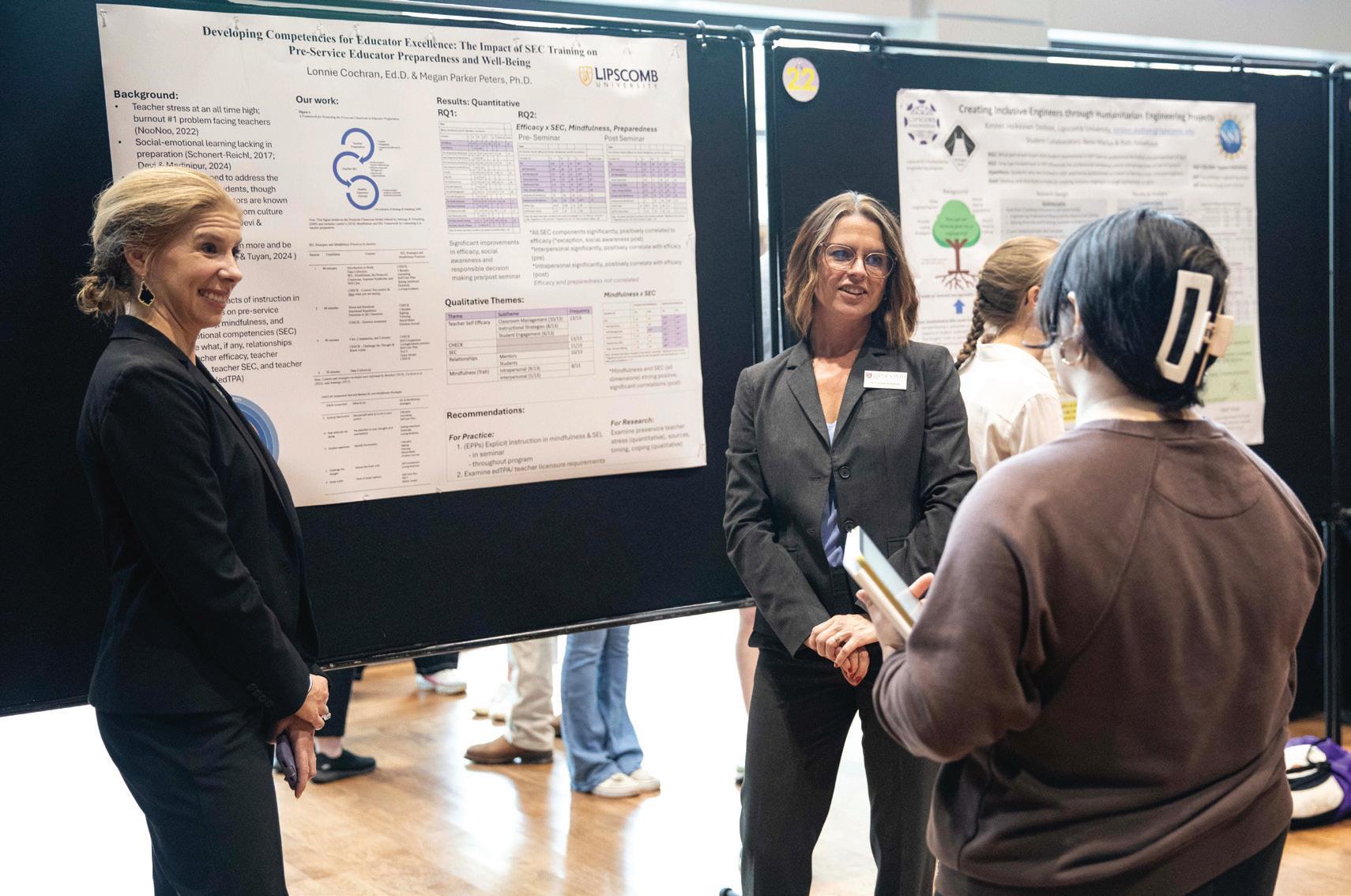
Association of Teacher Educators, Nashville.
Emily Mofield. (2024). Bridging access to rigor. with scaffolds and supports to stretch student thinking. ASCD Conference, Washington, DC.
Meyer, M. & Emily Mofield. (2024). StudentTeacher Conferencing to Support Secondary Students’ Talent Development. National Association for Gifted Children Teachers Summit, Virtual.
Megan Parker Peters & Dobbins, C. (2023). Leveraging Psychosocial Skill Training to Manage Self-Doubt, Anxiety and Frustration. National Association for the Education of the Arts, Virtual.
Jeanne Gilliam Fain (2023). Educator Moves: Honoring the Voices of Linguistically & Culturally Diverse Students. Presentation to the Teacher Advisory Council of the Tennessee Department of Education. Nashville.
Emily Medlock (2024). Connections 101: Building Relationships. Presentation for Metropolitan Nashville Public Schools’ Mentor Teacher Institute, Nashville.
Emily Mofield (2024). Level Up. Keynote Presentation for Confratute, University of Connecticut. Storrs, Connecticut.
Seward, K., McIntosh, J., Emily Mofield & Emily Graves (2023). Celebrating and Creating Blue-Ribbon Curriculum for Gifted Students. Presentation for National Association for Gifted Children, Orlando, Florida.
Megan Parker Peters (2023). The Gifted Learner: Affective Needs. Presentation for Johns Hopkins University, Virtual.
Lance Forman & Robin Cayce (2023). Navigating the Gray Areas of Leadership: Using Moral Dilemma Videos to Simulate DecisionMaking. Presentation to Kern Partners in Character Education and Leadership, Chicago, Illinois.
Lance Forman & Robin Cayce (2023). WISE Leadership and Ethical Dilemmas. Saint Mary’s University Summer Leadership Institute, Minneapolis, Minnesota.
Address Service Requested

View this issue and more at lipscomb.edu/now lipscomb.edu/education You know where you







Bachelor’s of Professional Studies in Organizational Leadership-Education Studies
• Flexible online course schedule
• On-site practicum
• Credit for work and leadership experience


• Accelerated undergraduate degree completion in as little as 18 months
Hurdles stand in the way. Lipscomb University is here to help you jump those hurdles in record time.

Enroll Now: Ted Meyer, ted.meyer@lipscomb.edu

Educational Leadership Master’s, Ed.S. or Endorsement
• $2,500 per semester flat tuition fee
• Flexible online course schedule
• Real-world experiences and jobshadowing in your home district
• High-quality mentor
Enroll Now: Sean Impeartrice, sean.impeartrice@lipscomb.edu





